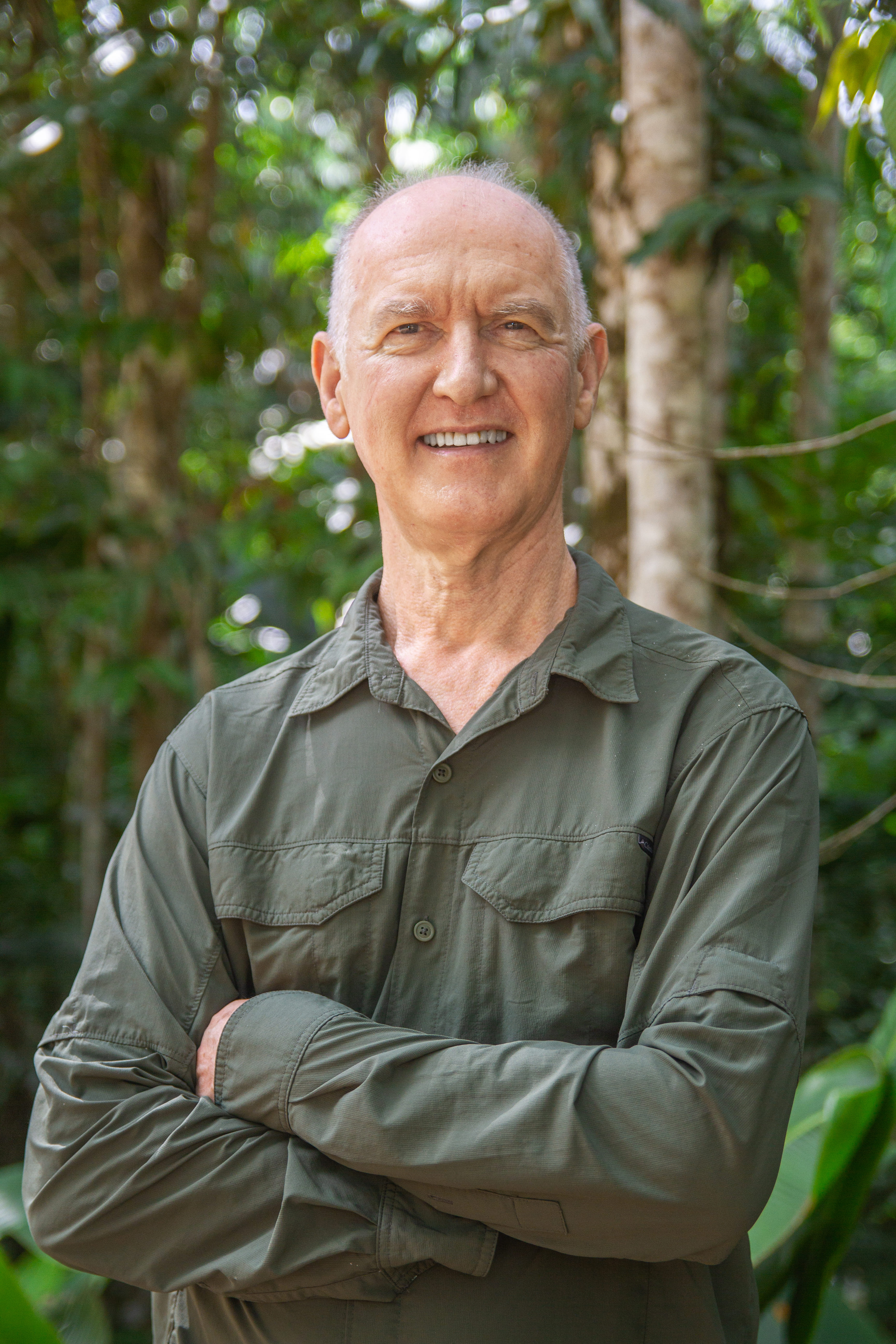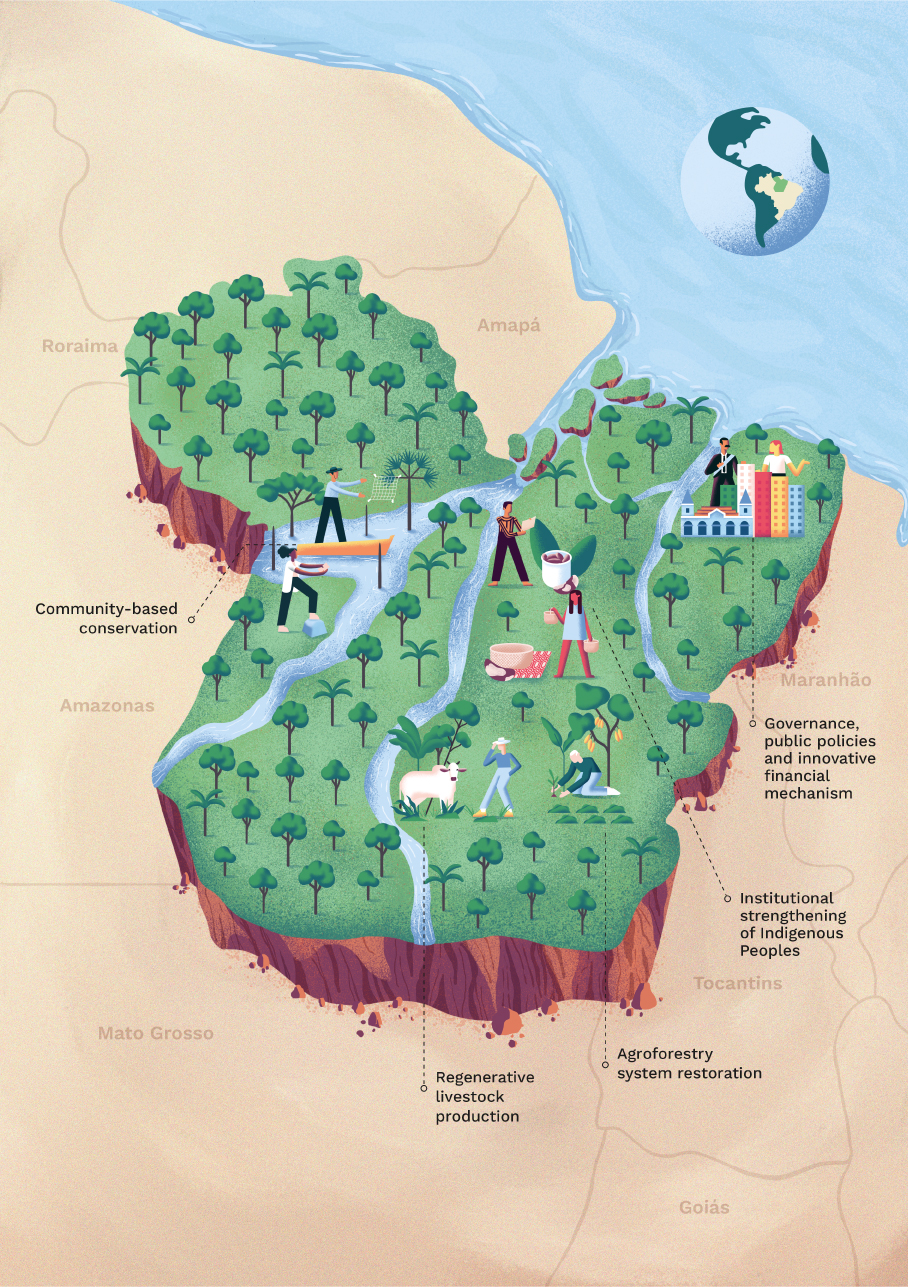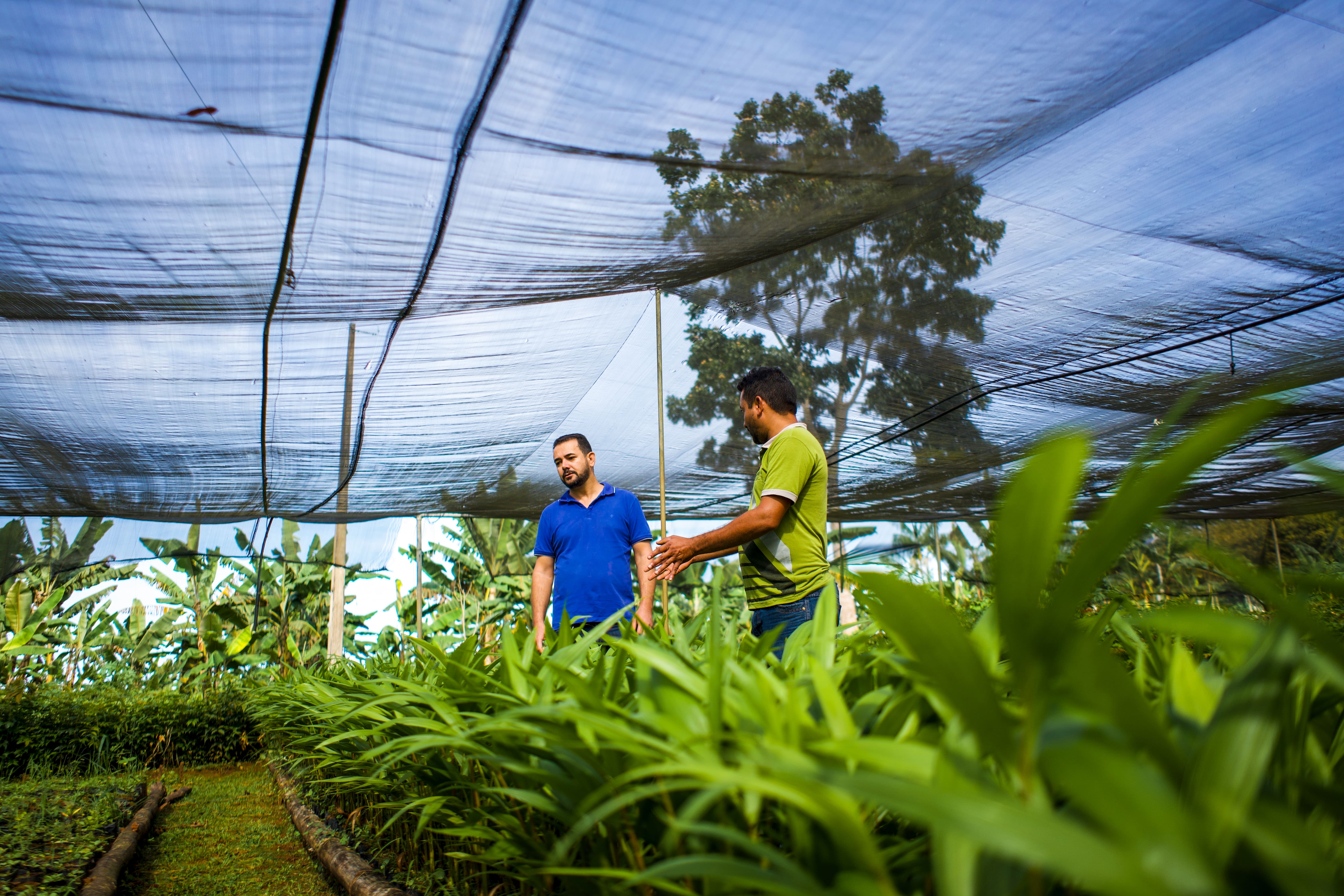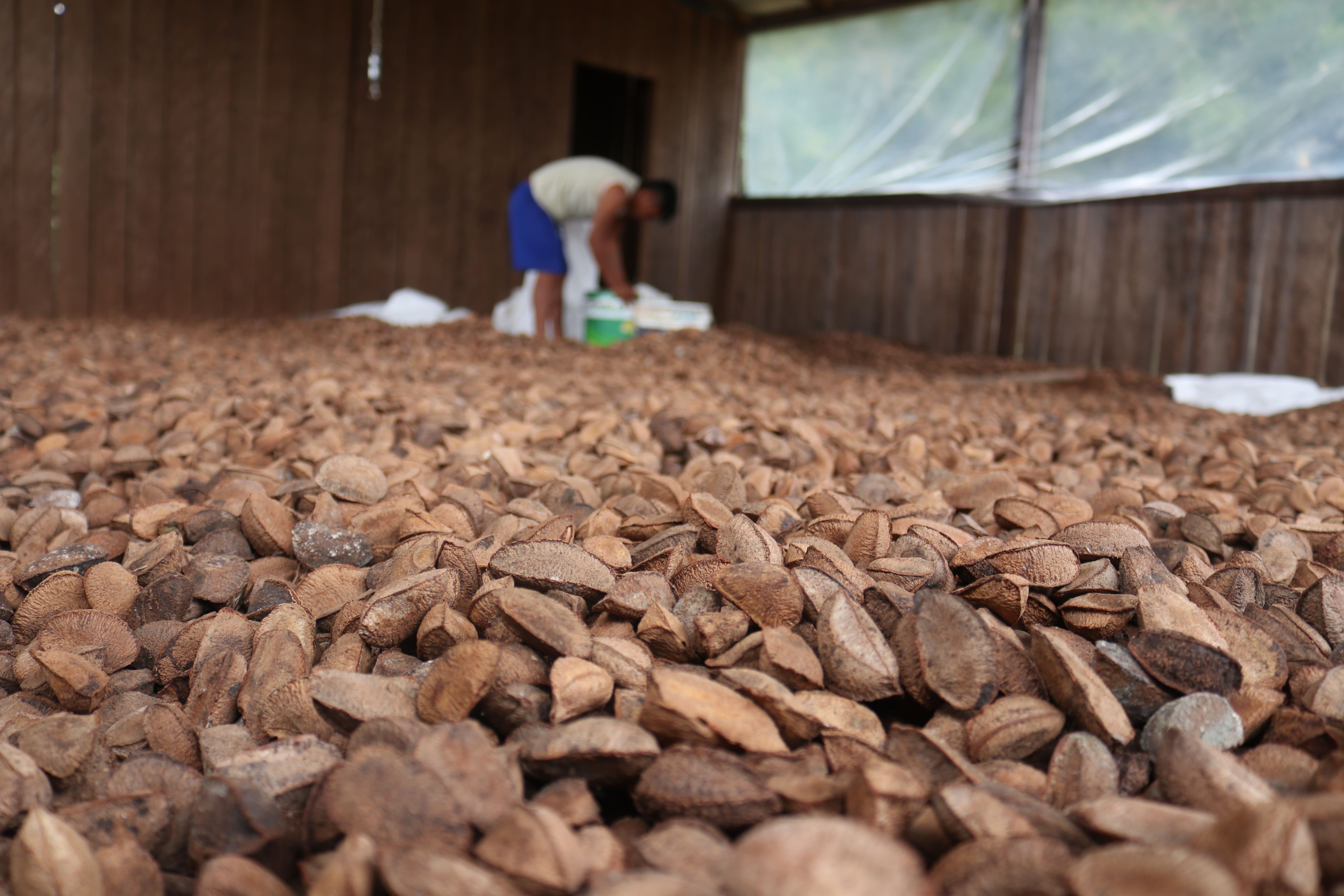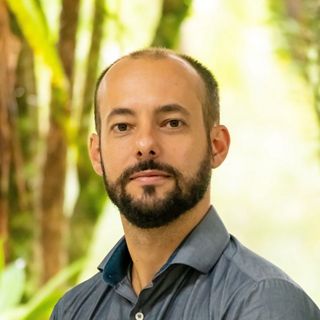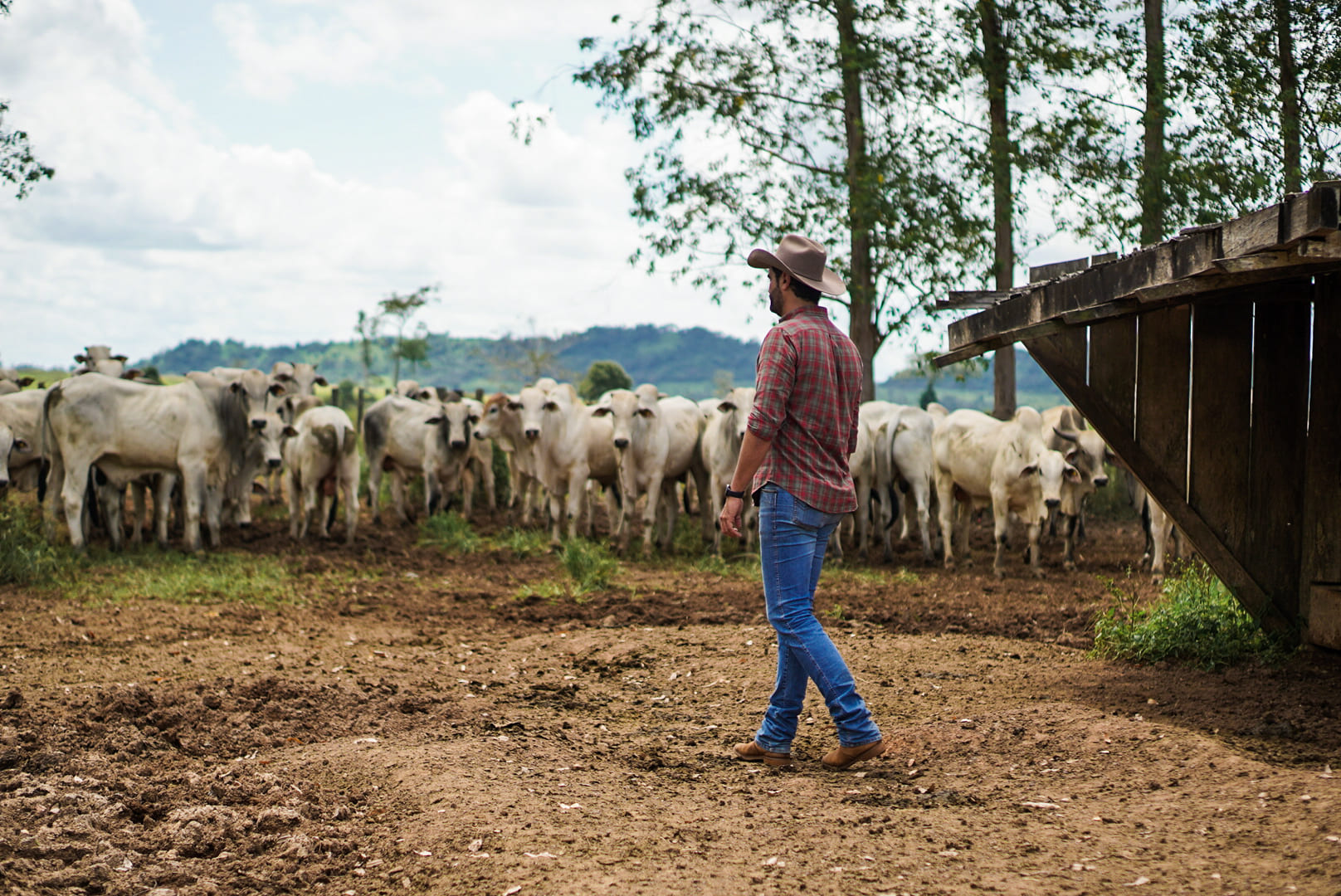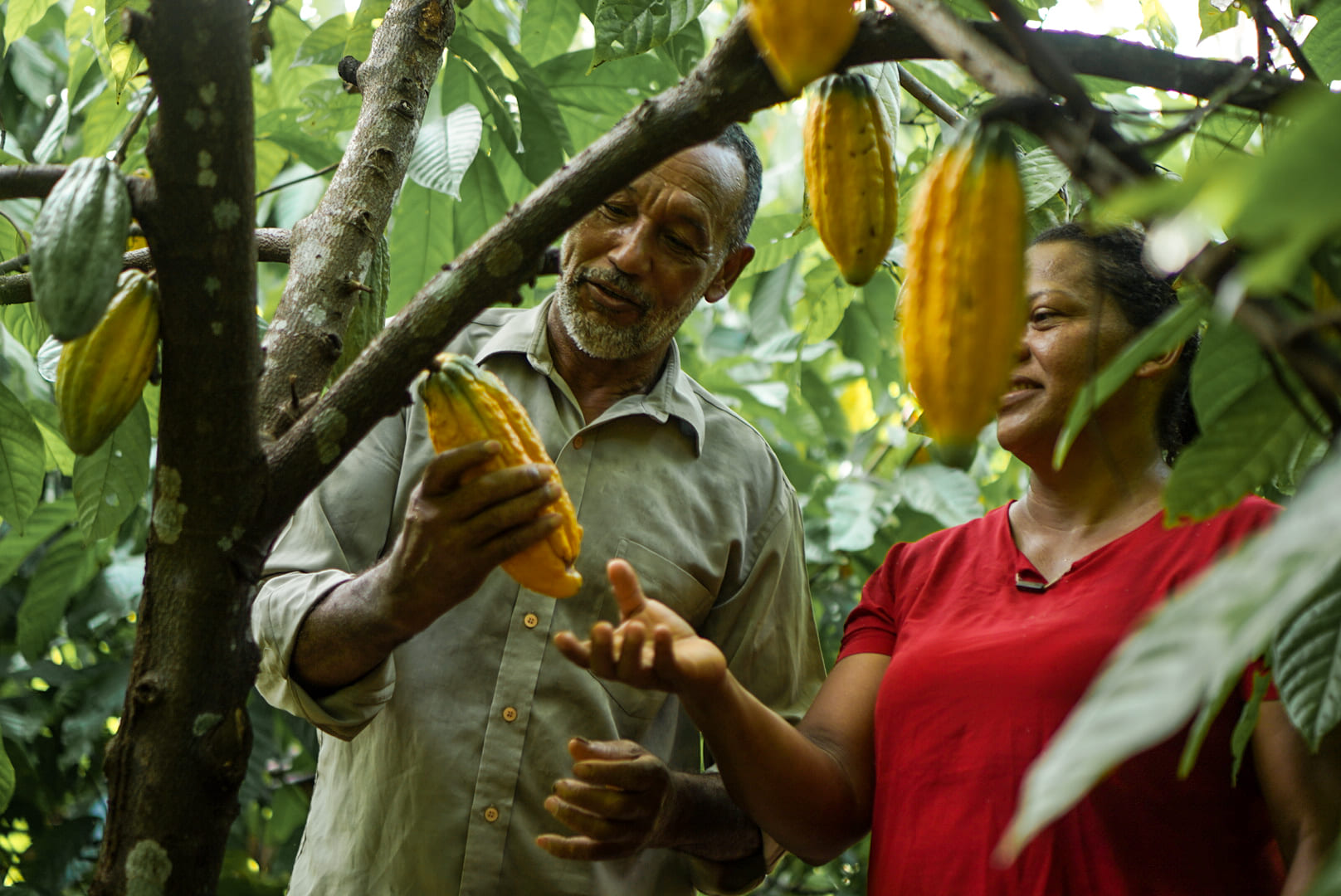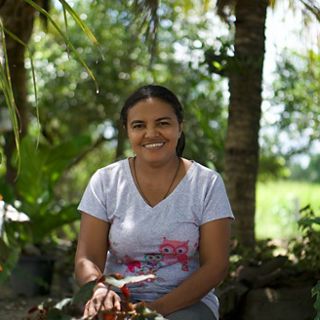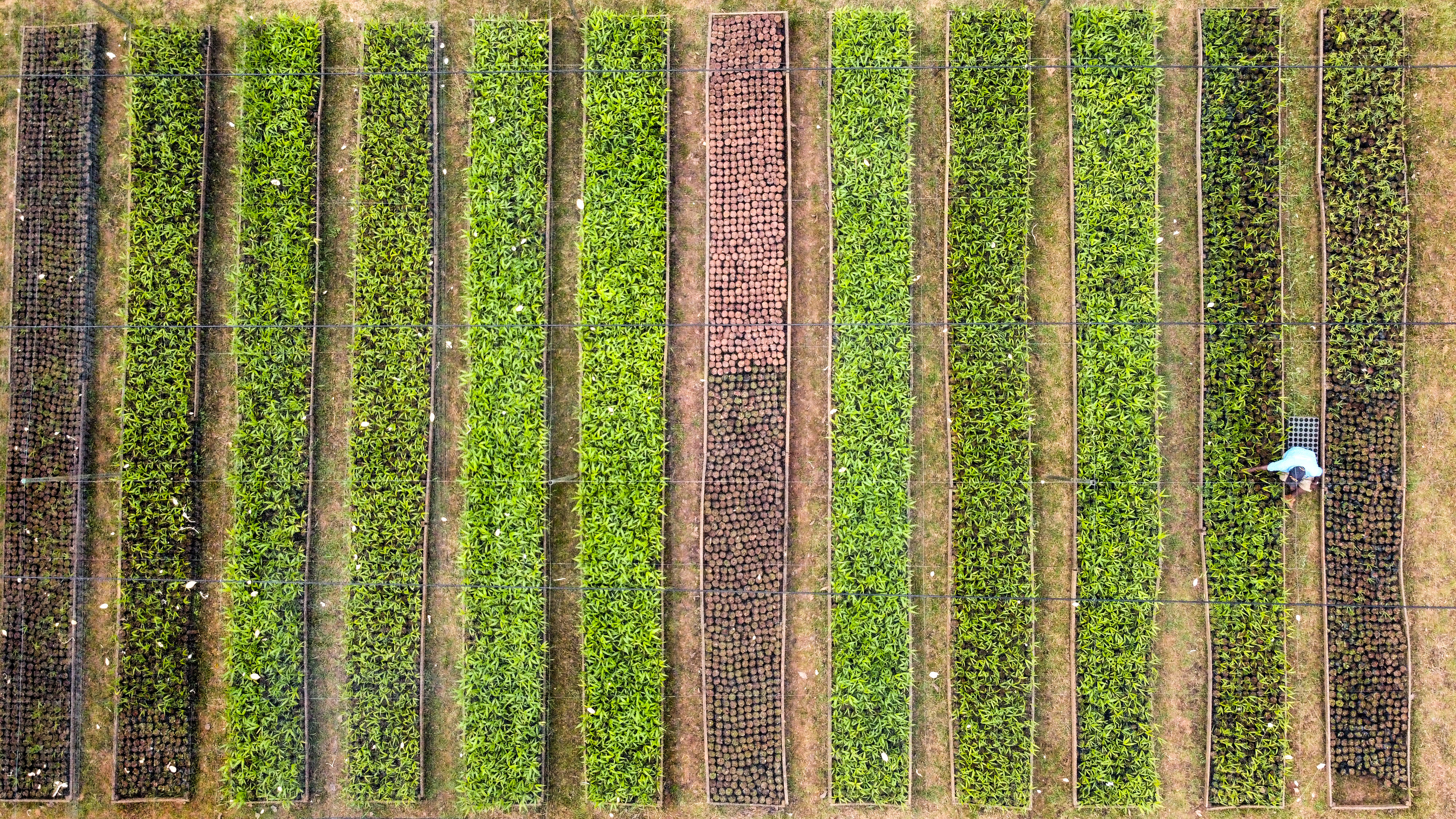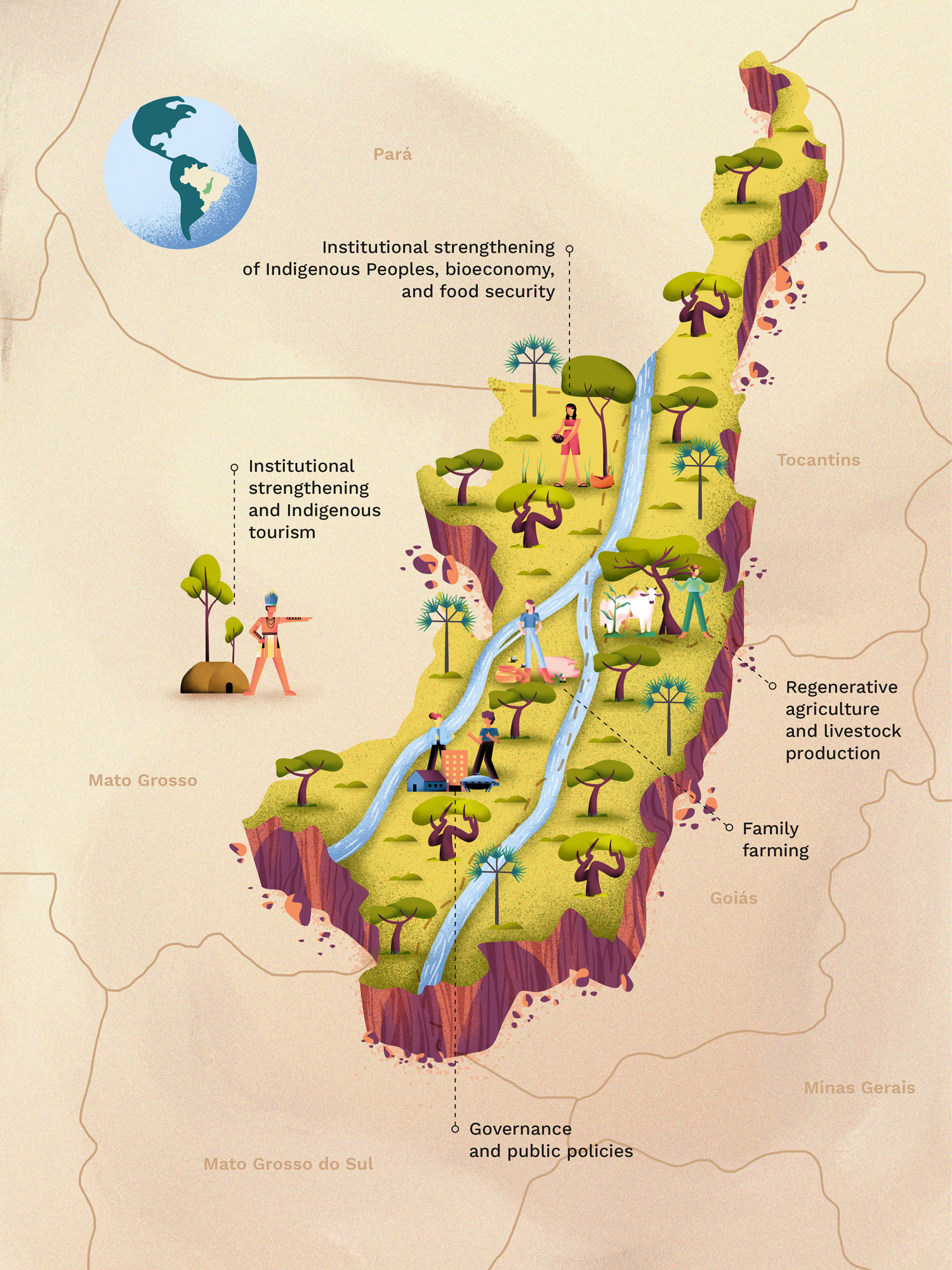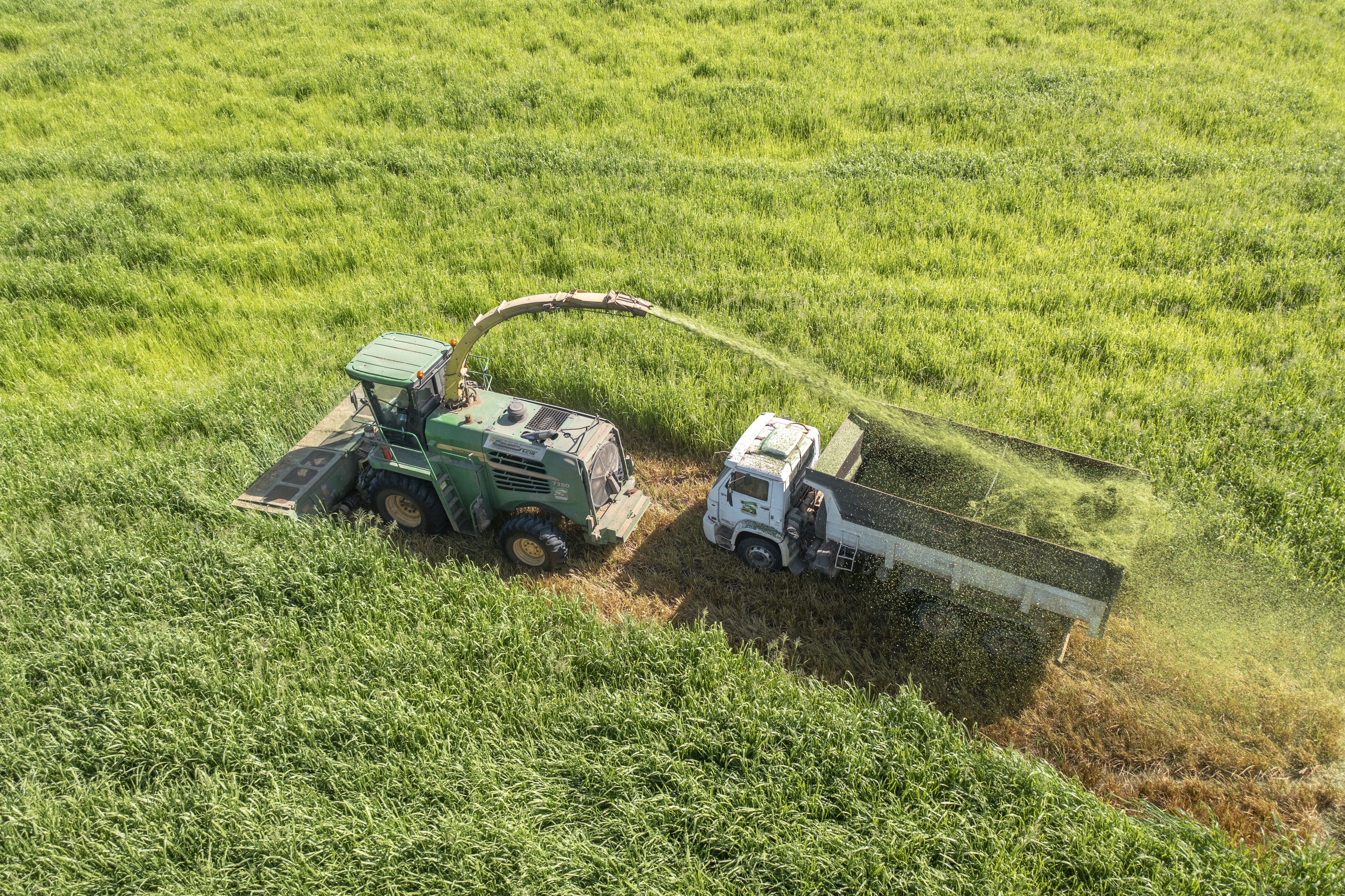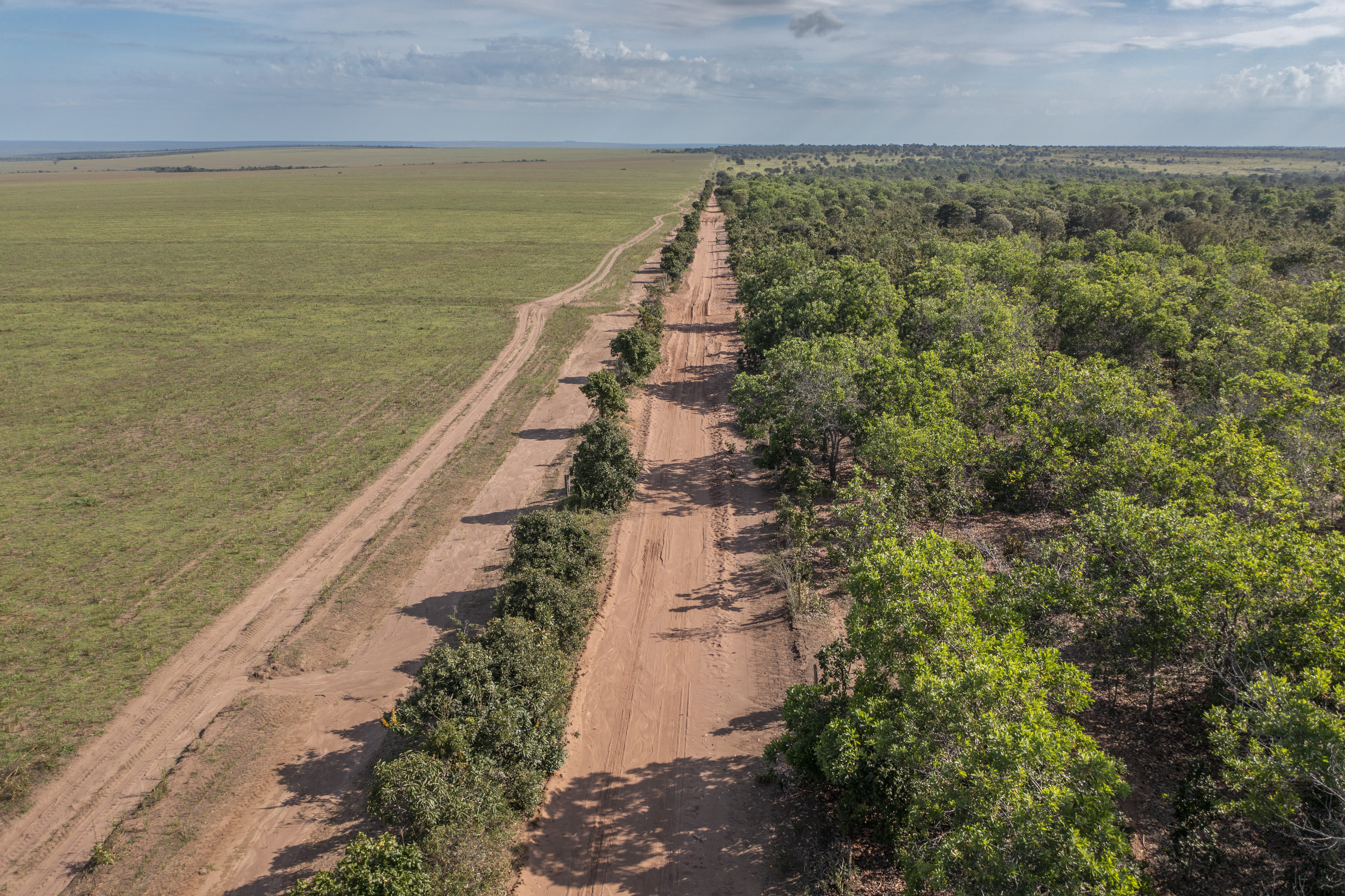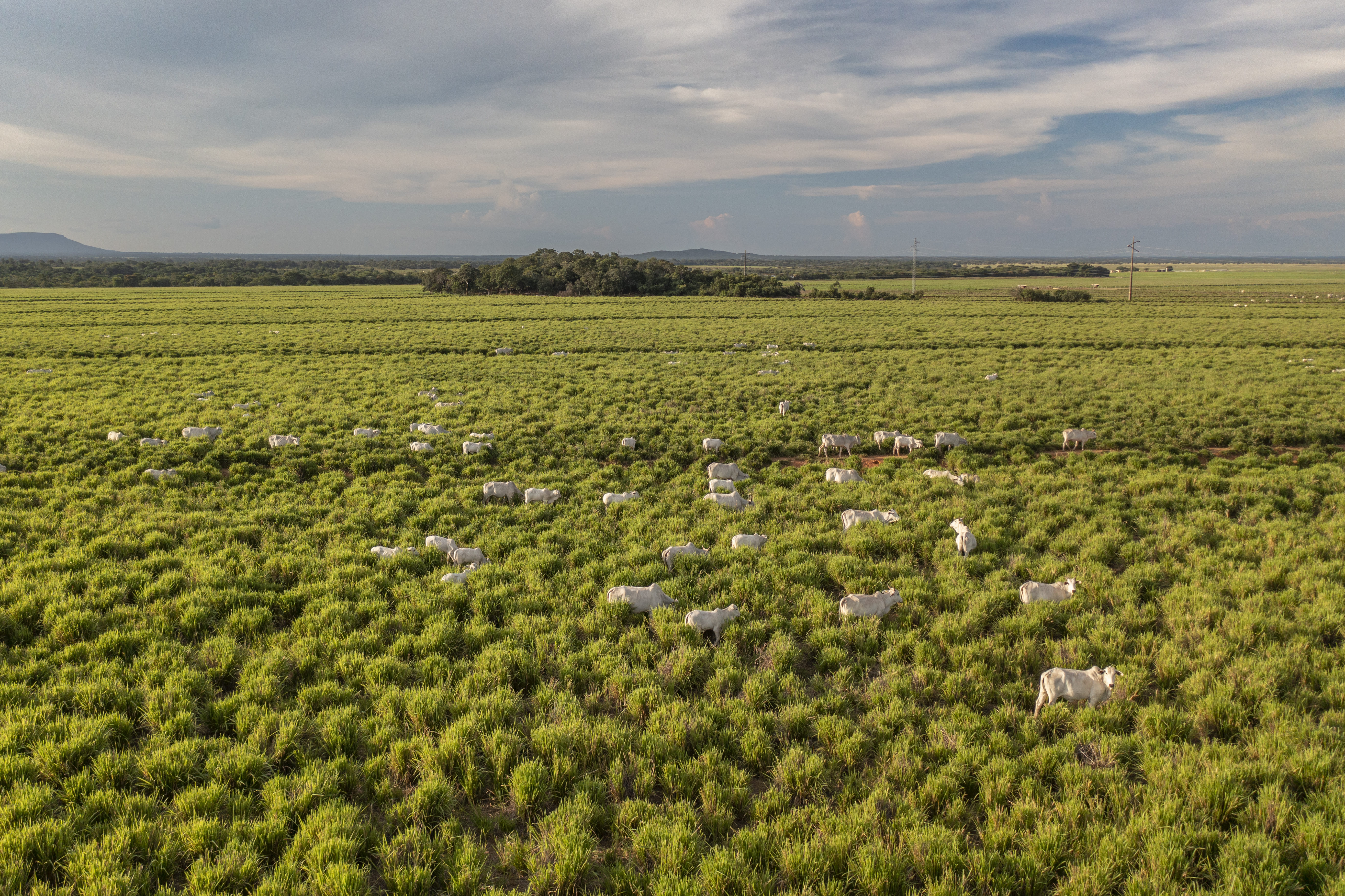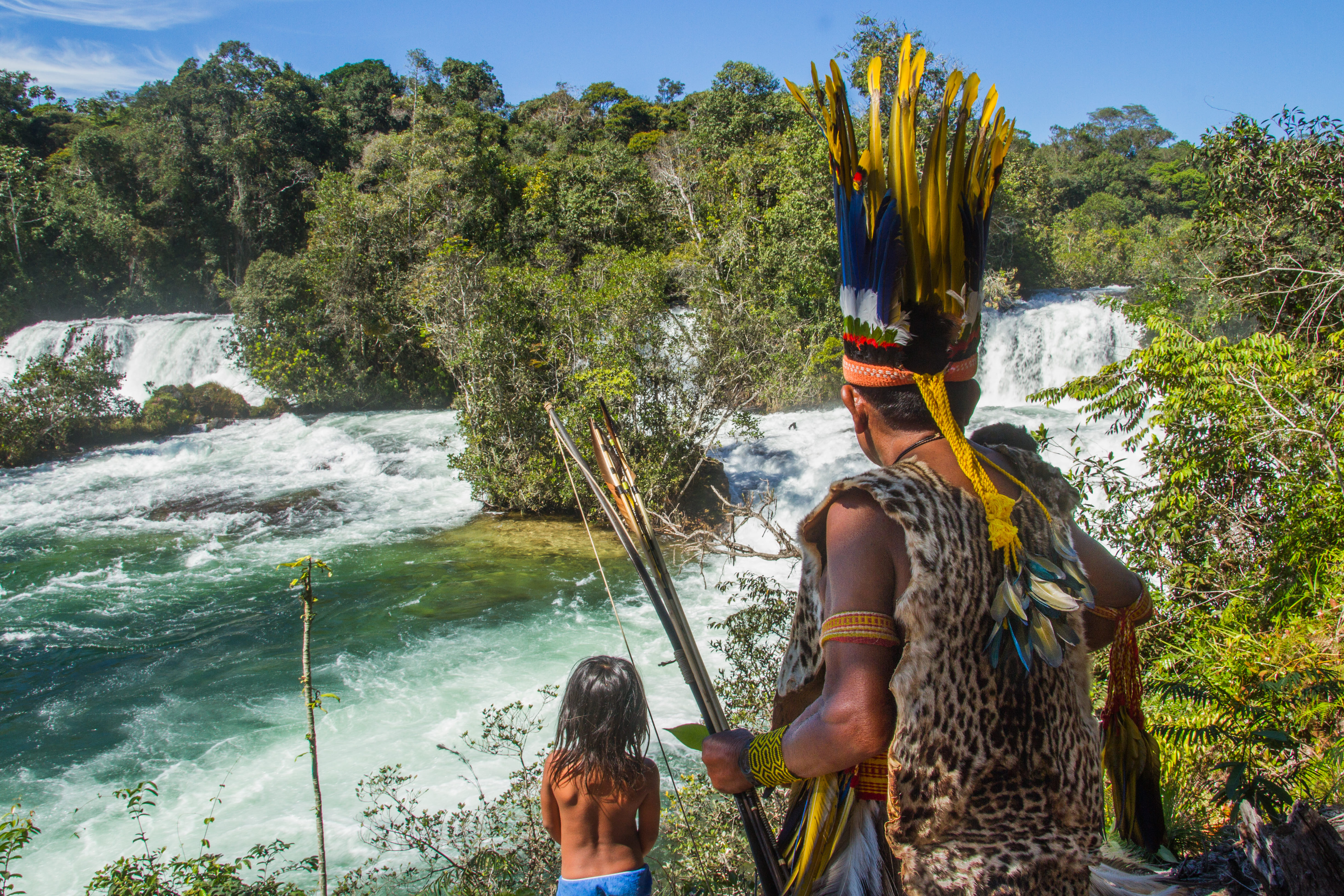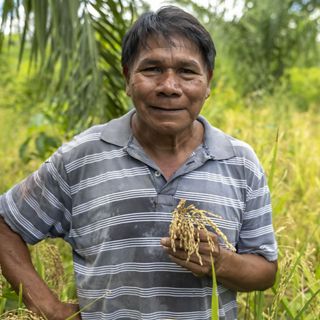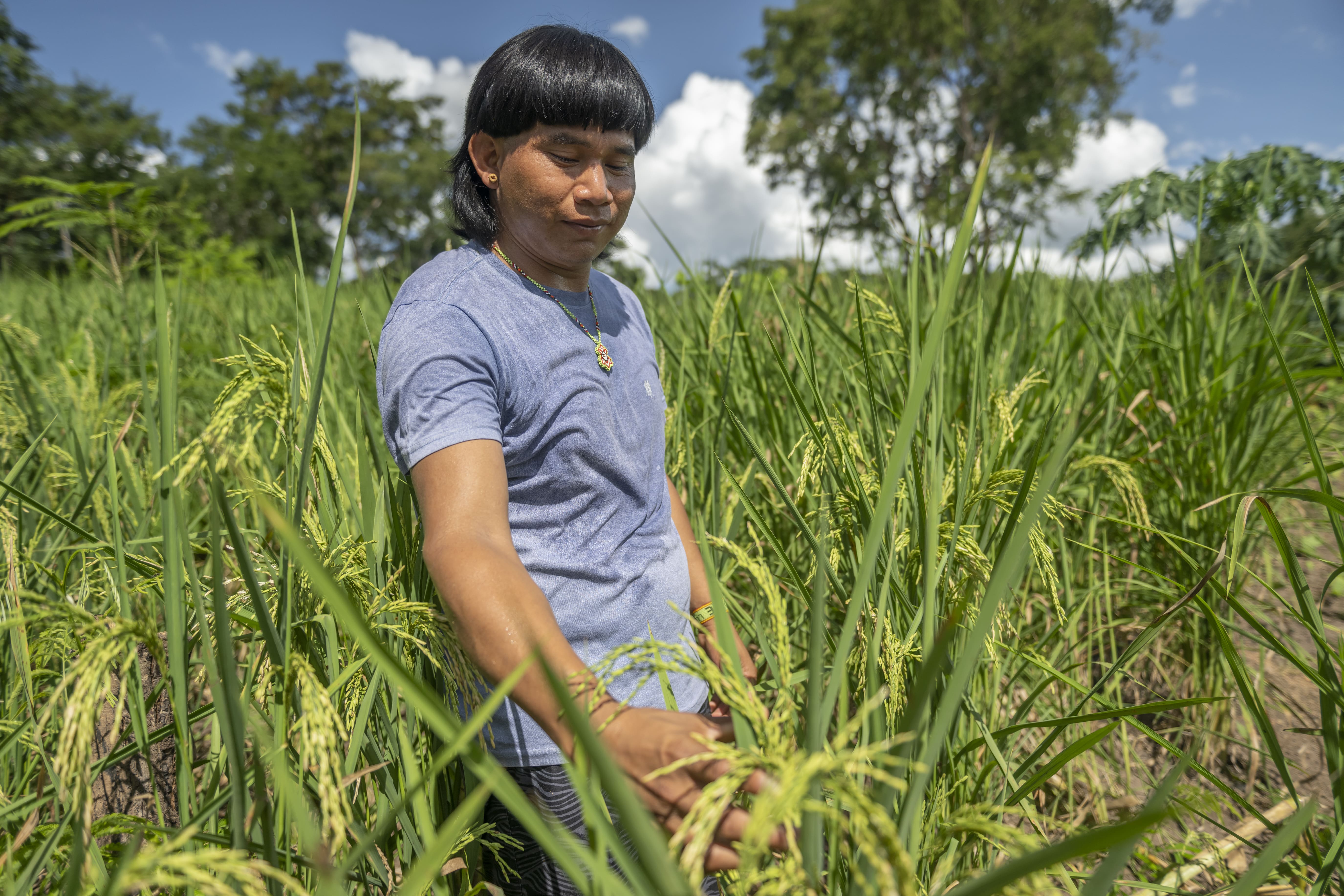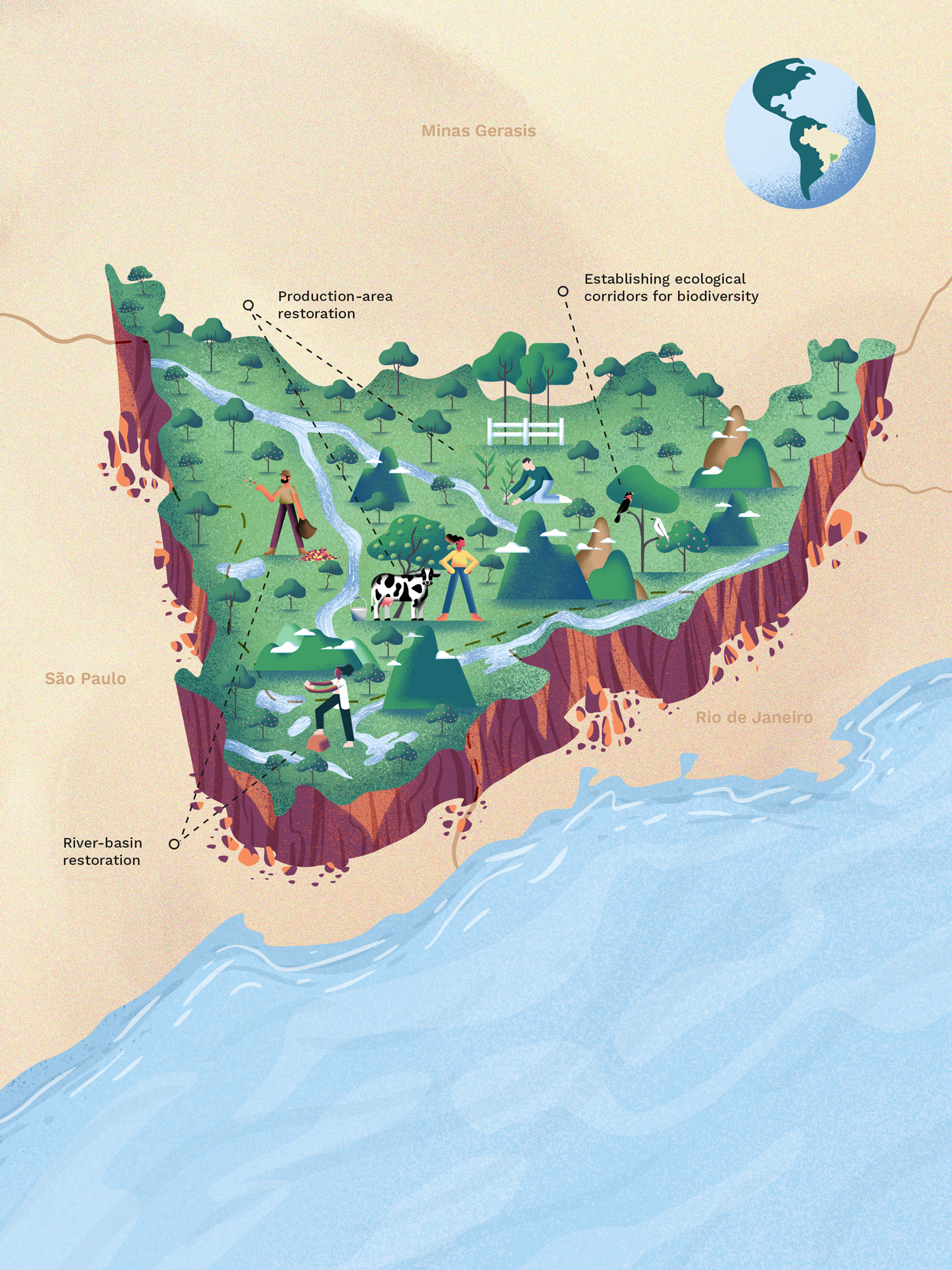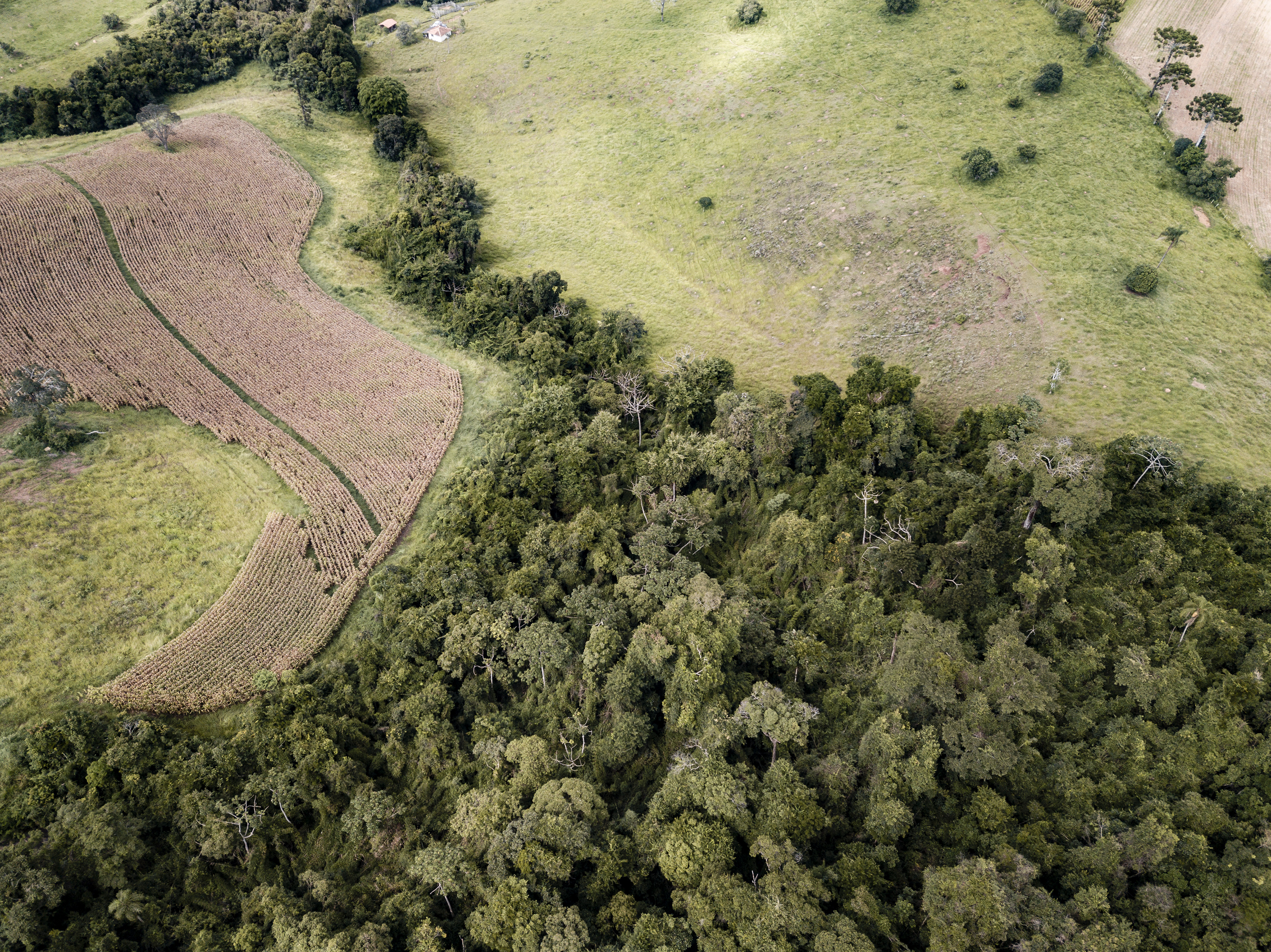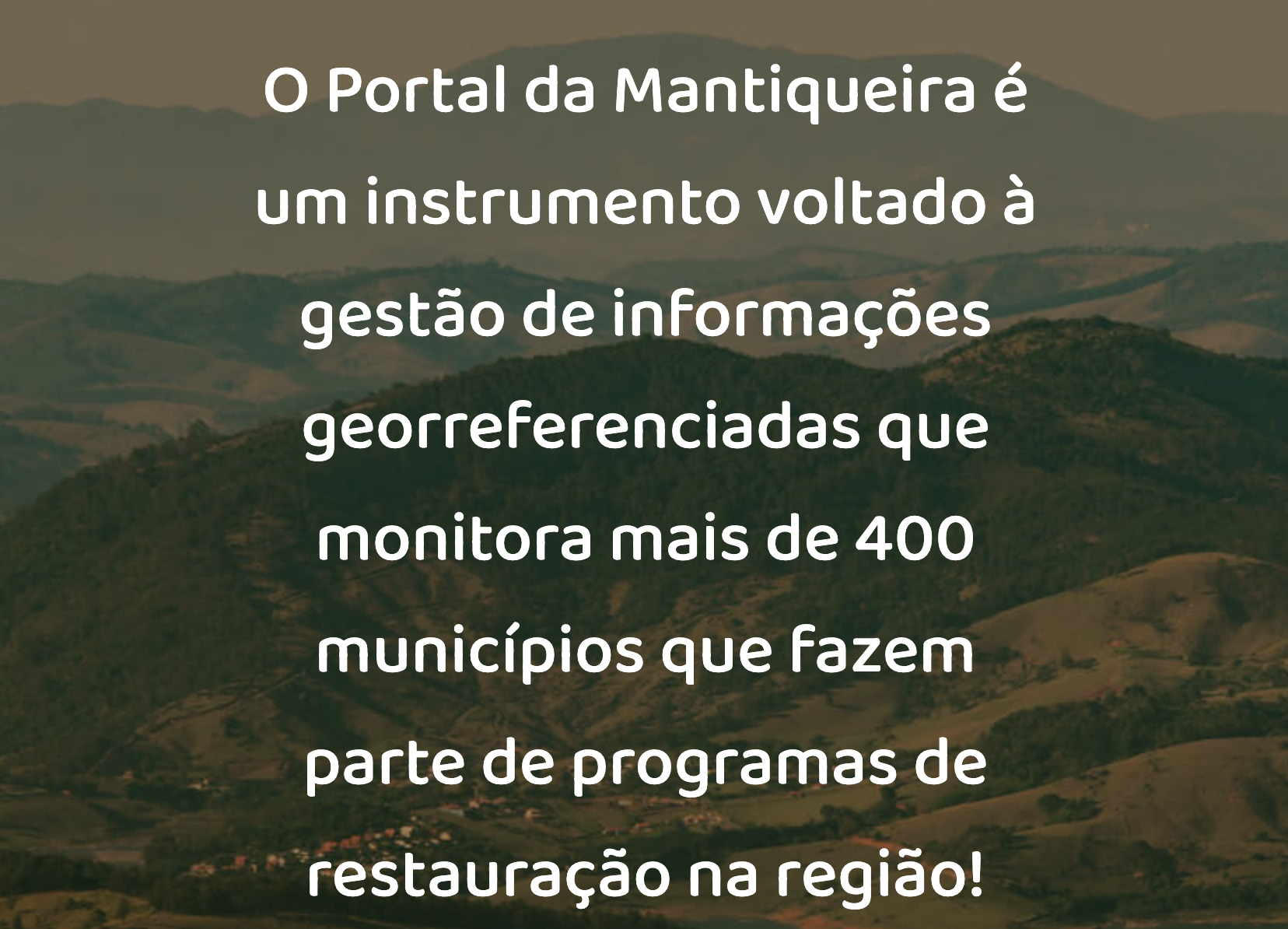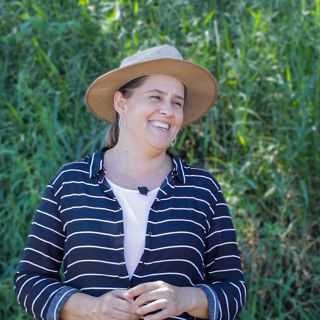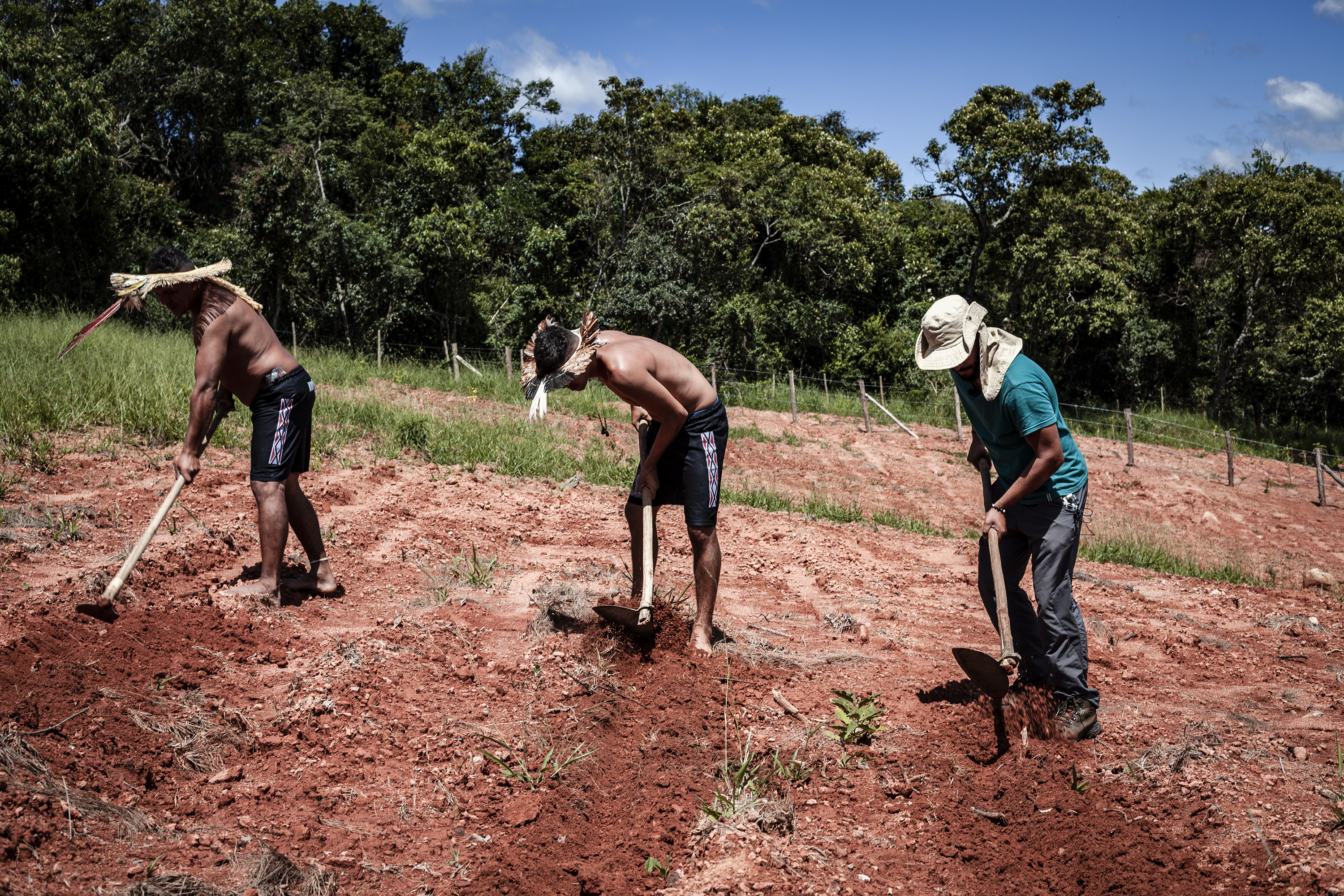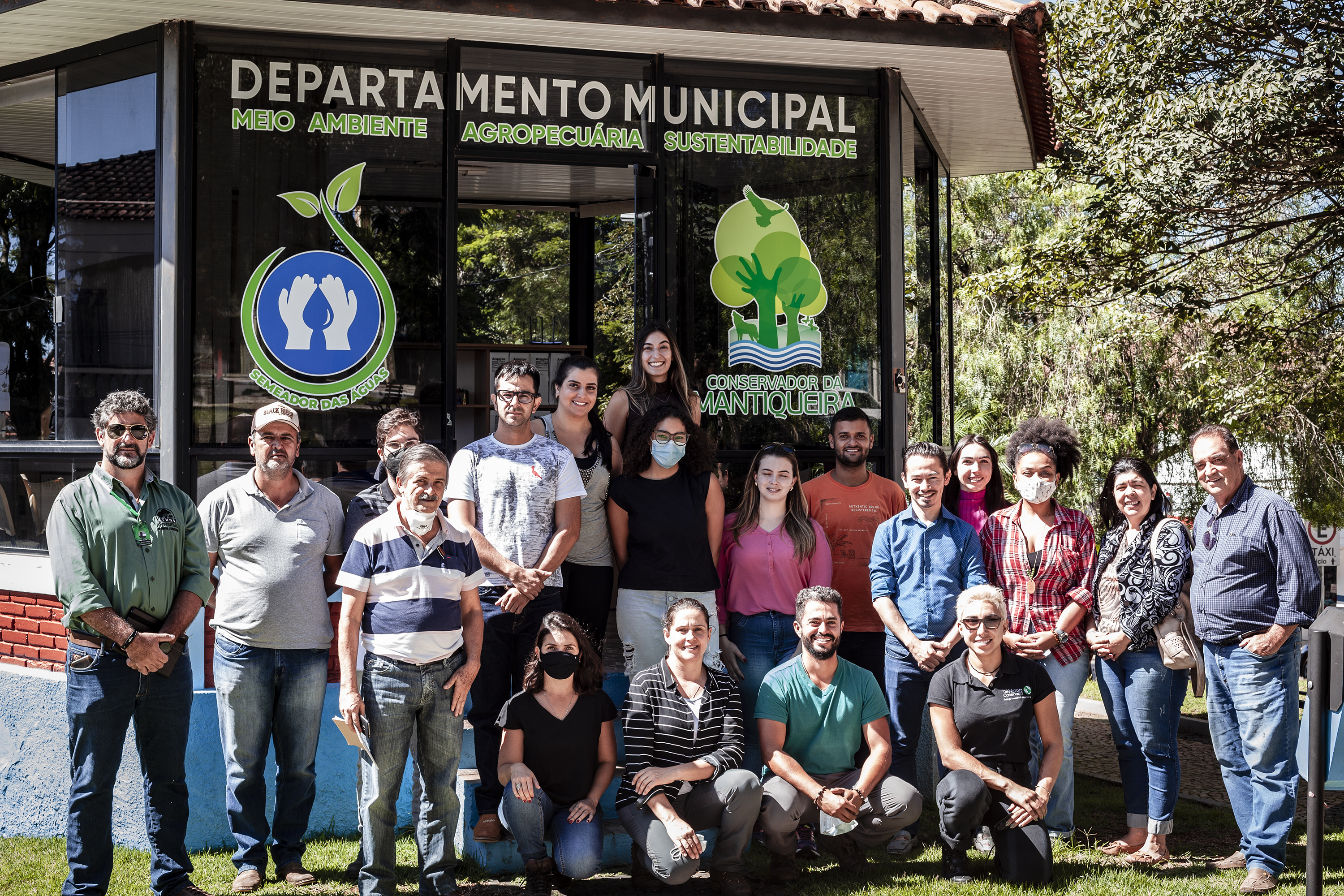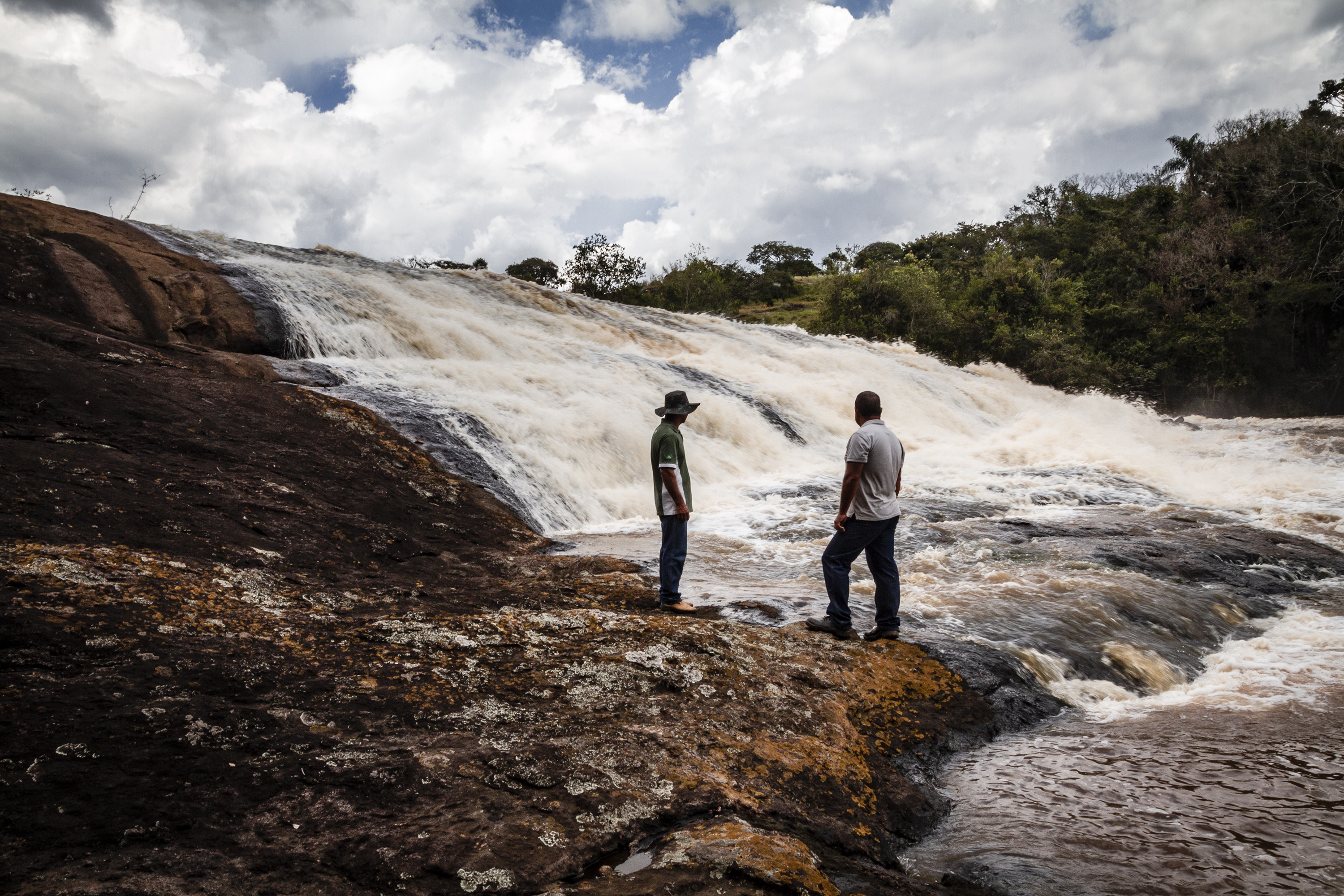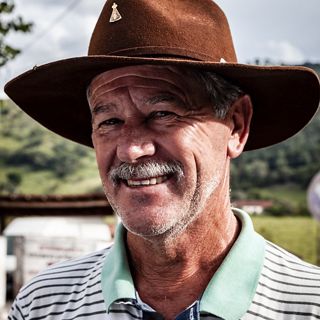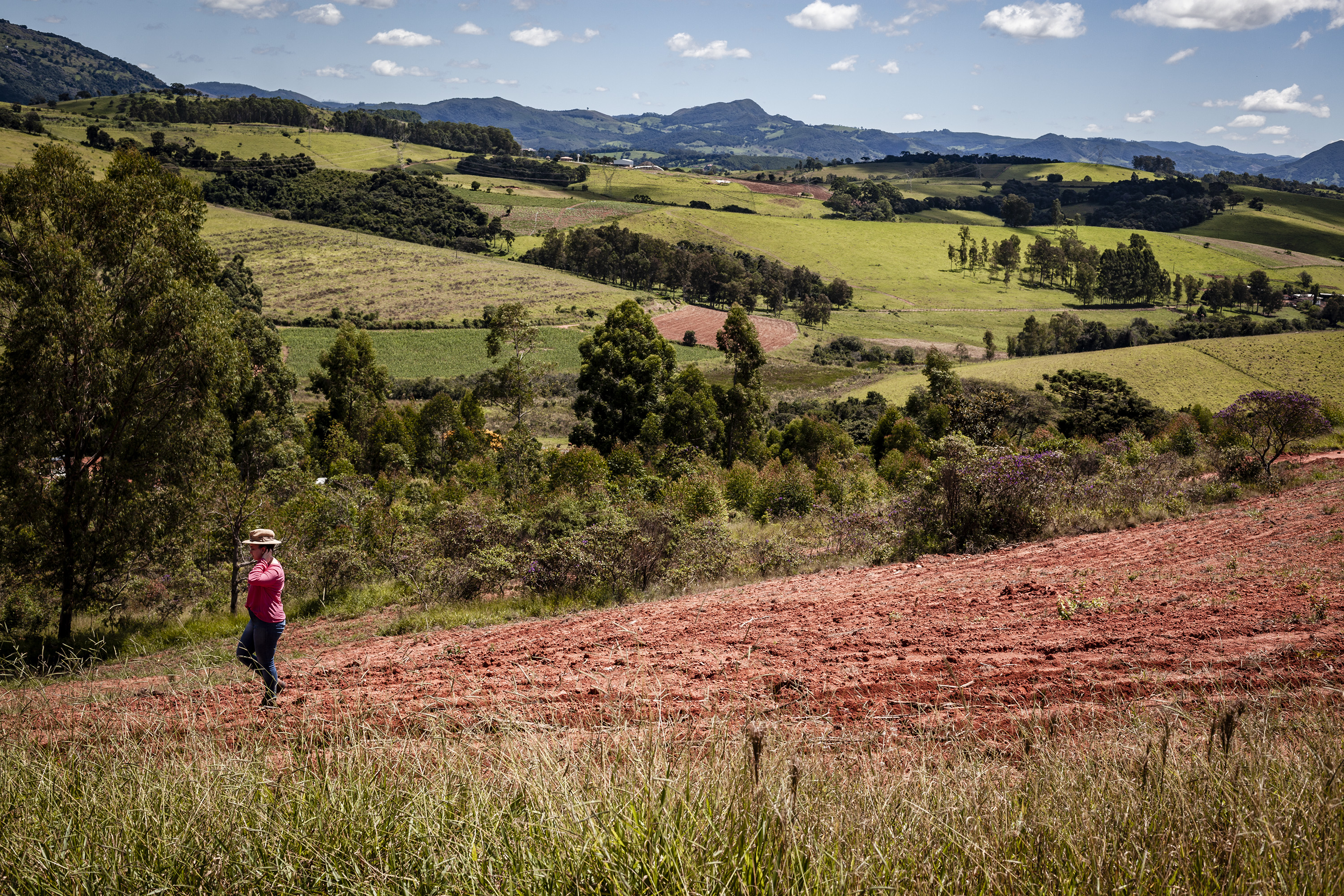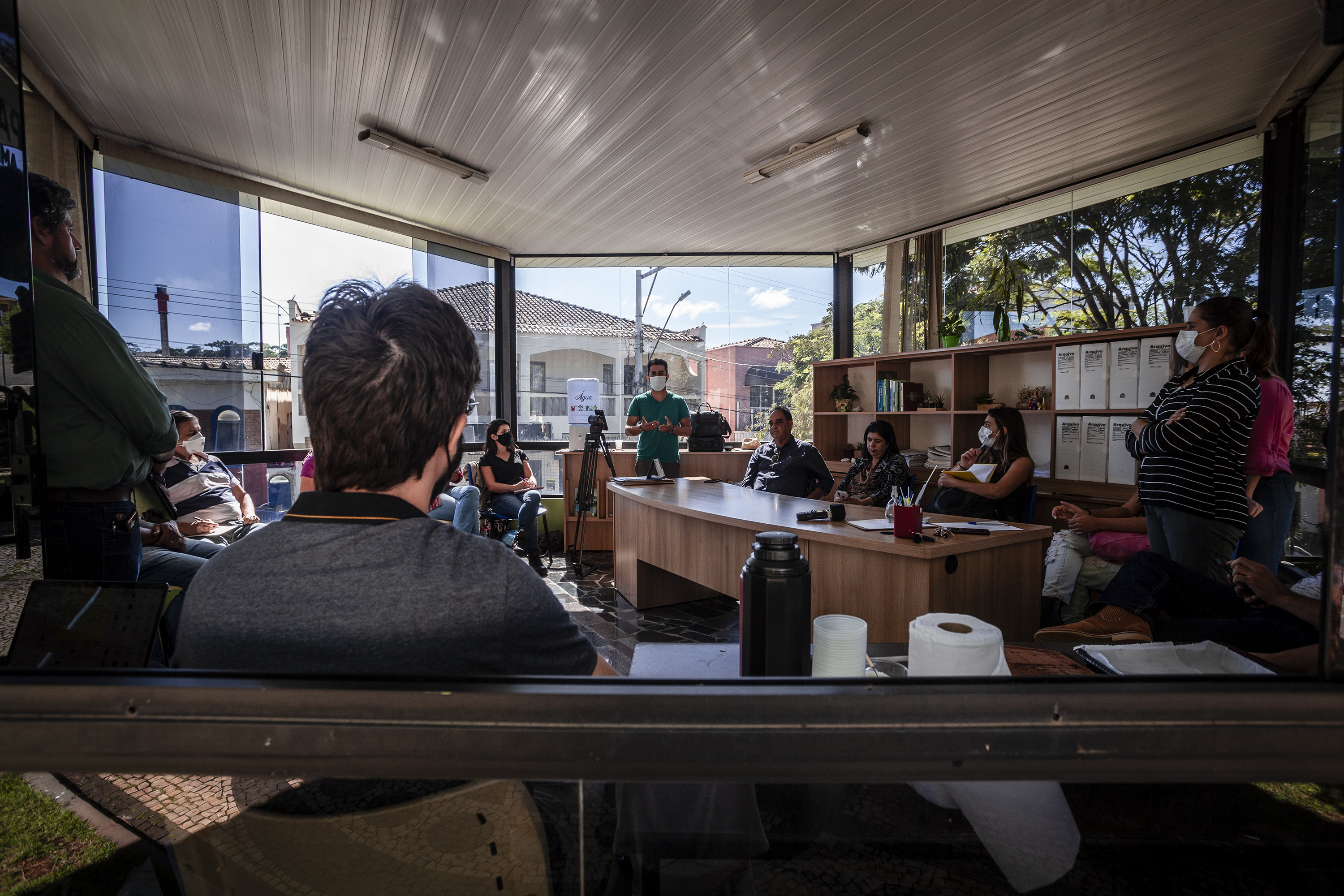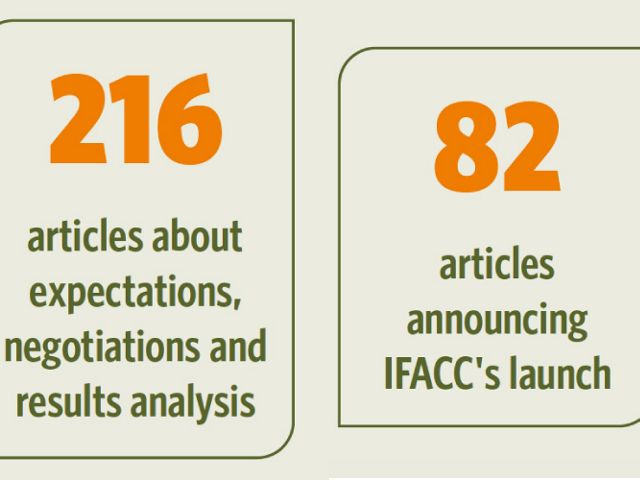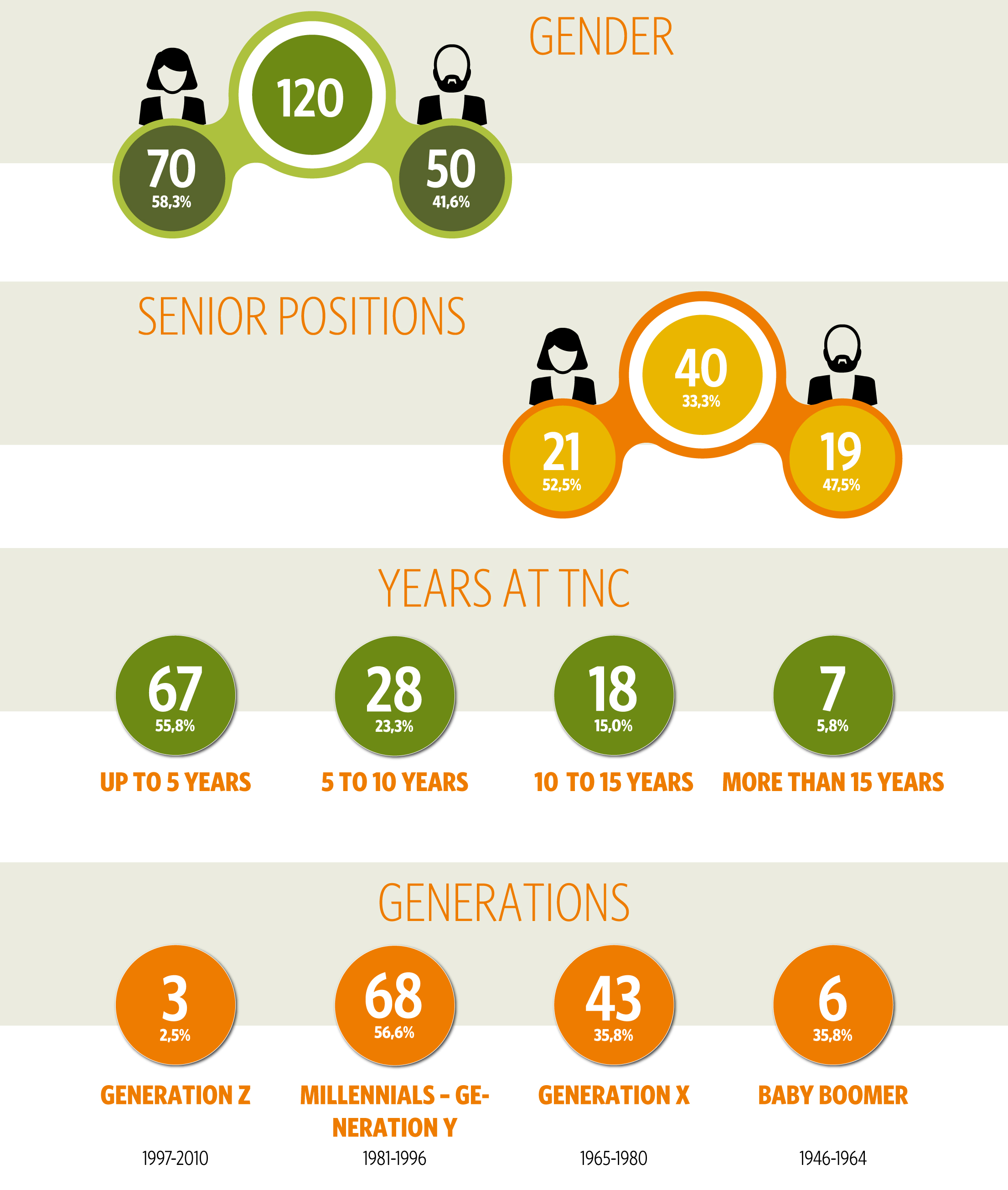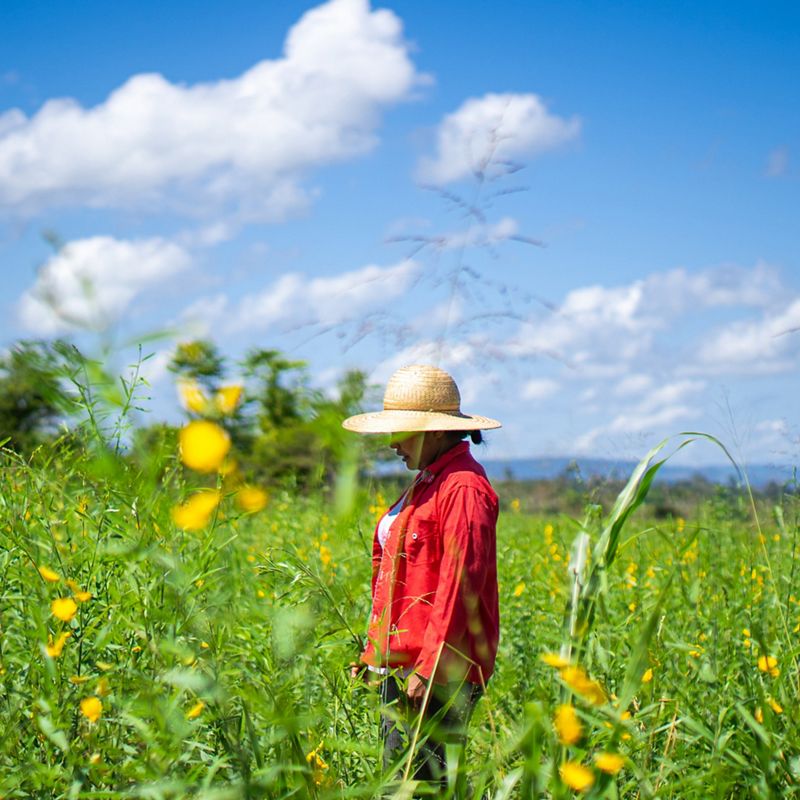
Executive Director Letter
Science and the media have shown us that climate change and the loss of biodiversity are a daily reality that affects people and landscapes in Brazil and the world. And to tackle such complex challenges, we need to be creative, look for pioneering solutions, and create inclusive cooperation networks, including partners from other sectors.
TNC has worked with communities, companies, governments, and various partners to find and help implement solutions that can promote a systemic transformation in the way markets, governments, and society relate to nature. We believe that's the change that will bring transformation in the scale needed to tackle the challenges threatening communities, species, forests, habitats, and landscapes worldwide.
In Brazil, our science-based work aims to provide information, data, and technical knowledge. We continuously seek innovation to help coordinate efforts and influence decision-making that strengthens nature conservation in the Amazon, Cerrado, and Atlantic Forest.
In those three biomes, we identified areas where we can implement actions with the potential for replication in other regions.
Whether seeking ways to halt deforestation in Pará, helping direct production expansion to already-opened areas in the Araguaia basin, or leveraging forest restoration on important river basins in the Mantiqueira, we continually work in integration with other partners, including all links in the chain. Our goal is to have the environmental benefits essential to humanity go hand in hand with social and economic benefits for all, especially Indigenous Peoples, Quilombolas, traditional communities, rural producers, and landowners, all essential partners for nature conservation.
In 2021, we lived through another challenging time; however, we achieved all the important outcomes in our work in Brazil.
In the Amazon, fomenting economic opportunities to avoid deforestation, we are expanding the restoration of degraded areas via agroforests. We initiated that work ten years ago with the Forest Cocoa project that today has already benefitted over 300 farming families in the southern and southeastern regions of Pará. We are also encouraging technologically original projects to strengthen the bioeconomy between Indigenous Peoples and traditional communities in the Tapajós basin.
In the Cerrado, we participated in the development of a food security plan to feed six Indigenous communities in the Middle Araguaia region during the pandemic. We also supported the design of the first Indigenous tourist plan in the state of Mato Grosso, produced by the Paresi People. And we are also aiding in recovering 76,600 acres of degraded pastureland through the Reverte Program.
In the Atlantic Forest, we had the support of the Regenera América Program to restore 6,671 acres of forests on rural properties in the Mantiqueira Range. We also launched the Mantiqueira Portal, an advanced spatial data tool that helps monitor restoration projects and facilitates regional decision-making.
Enjoy our annual report and learn more about those and other results that make us proud.
We have little time and need to act now. Only by working together can we achieve the scale needed to tackle climate change and biodiversity loss with the necessary urgency.
Together, we find a way.
Ian Thompson
Executive Director
TNC Brazil
Our planet is facing an unprecedented crisis related to climate change and the loss of biodiversity that threatens the health of our ecosystems, communities, and way of life. Science has made it clear that we have years, not decades, to tackle this crisis.
The Nature Conservancy defined ambitious science-based goals for 2030, aligned with local and global priorities. But we cannot achieve them alone, and that is why we have been working around the world for over 70 years with local communities, scientists, companies, governments, and other organizations to protect the lands and waters on which all life depends.
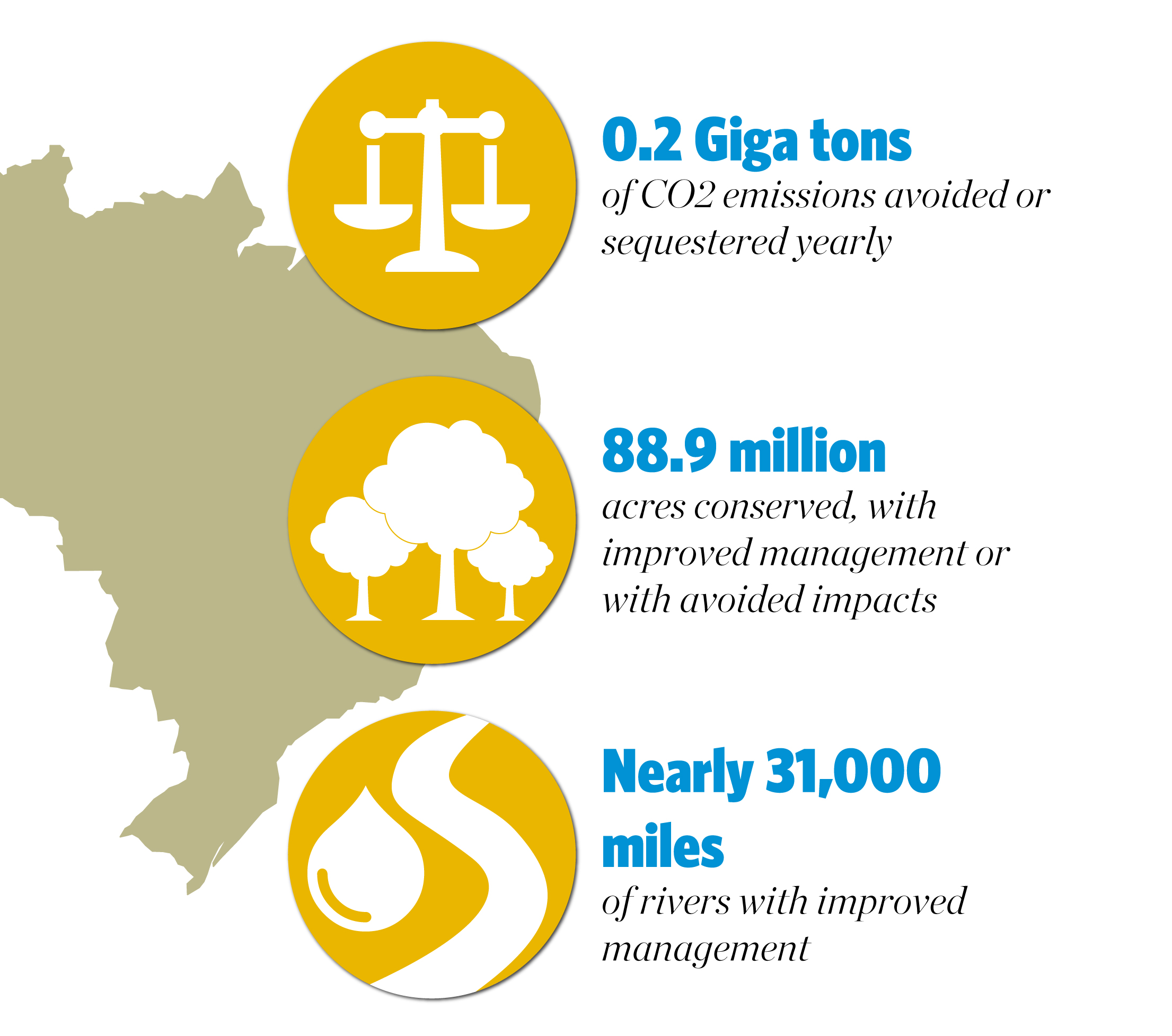
Since 1988 in Brazil, our work has focused on promoting systemic change in the way people, governments, and markets relate to nature. Working in partnership with Indigenous Peoples, Quilombolas, and traditional communities, and with the public and private sectors, we develop initiatives to achieve scalable results for nature conservation and improve the quality of life in local communities in the Amazon, Cerrado, and Atlantic Forest.
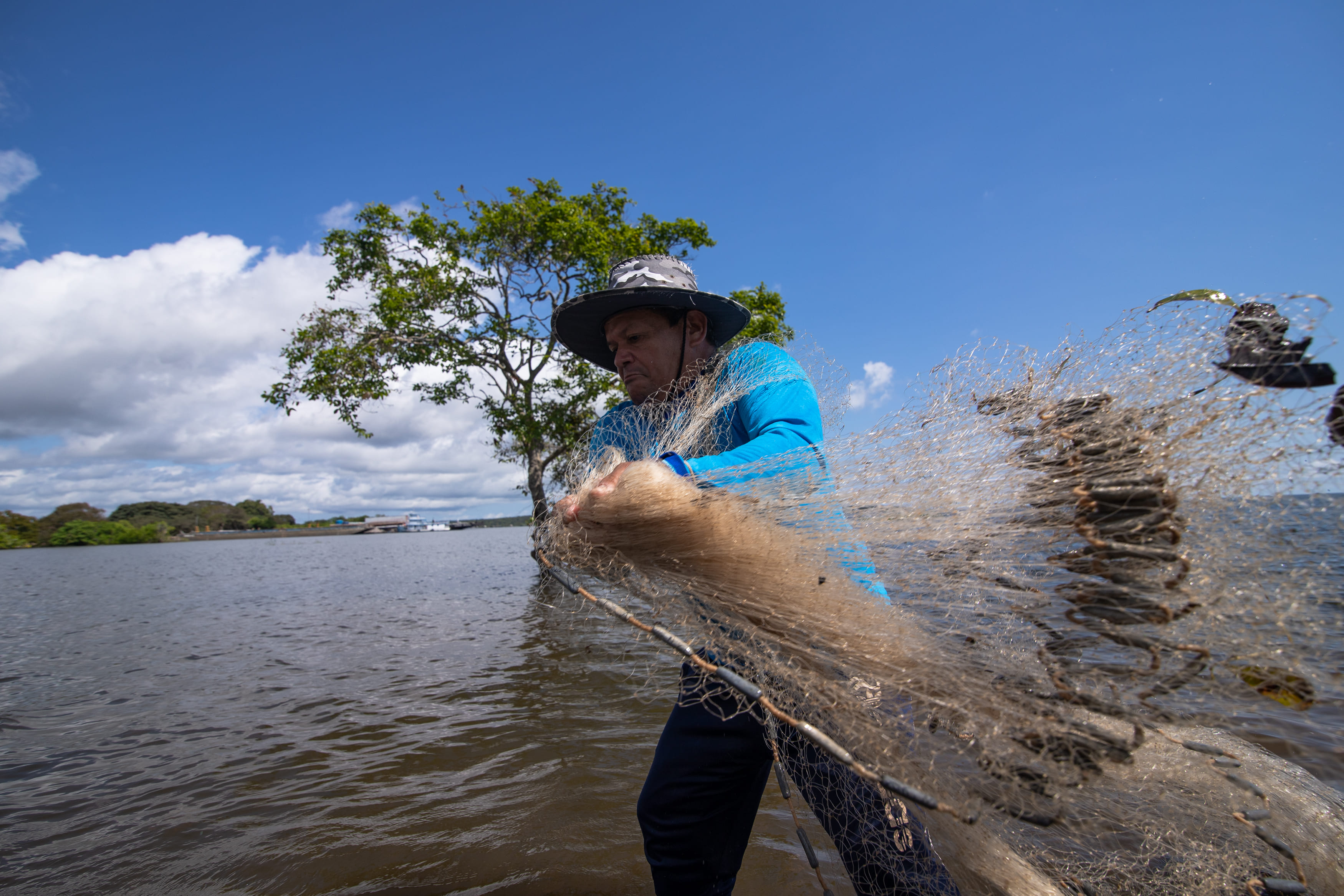
Support for community-based conservation in the Tapajós Basin
TNC, the Federal University of Western Pará (UFOPA), Lower Amazon Fishers' Movement (MOPEBAM), the Forest Tourism and Crafts Cooperative (TURIARTE), and the Society for Research and Protection of the Environment (SAPOPEMA) have worked together via the Águas do Tapajós project to strengthen fishing communities' institutions. The aim is to help them manage fishing resources and develop biodiversity monitoring and water quality research in the Tapajós Basin. The project also had an Inovatec Sociobiodiversidade call for proposals developed by the UFOPA students in partnership with the region's Indigenous Peoples and traditional communities. The work will add value to traditional products and contribute to implementing new technologies that benefit communities.
New Project to give scale to restoration in agroforests
The Agroforestry and Restoration Acceleration project was launched to implement large-scale Agroforestry Systems (AFS) in southern and southeastern Pará state based on an innovative business model from a partnership between Amazon Inc. and TNC. The parties met to discuss institutional alignment with key partners, such as the government of Pará, local municipal governments, farmer federations, cocoa-growing development agencies, research and extension groups, and the private sector, and the project's objectives. Goals include engaging up to 3,000 families and covering 44,478 acres, or about the size of Washington D.C., and removing 9.6 tons of carbon from the atmosphere over 30 years.
Strengthening socio-biodiversity's bioeconomy
An unprecedented study developed by TNC in partnership with the Interamerican Development Bank (IDB) and the company Natura demonstrated that socio-biodiversity's bioeconomy can generate more than $32.4 billion in income in Pará state by 2040, an increase 30-times over the current revenue. In addition to highlighting public policies to encourage those chains, which have sustainable development as a premise, TNC became part of the Working Group that is developing Pará's Bioeconomy State Plan to encourage this promising market that is essential to the economy of Indigenous Peoples and traditional communities
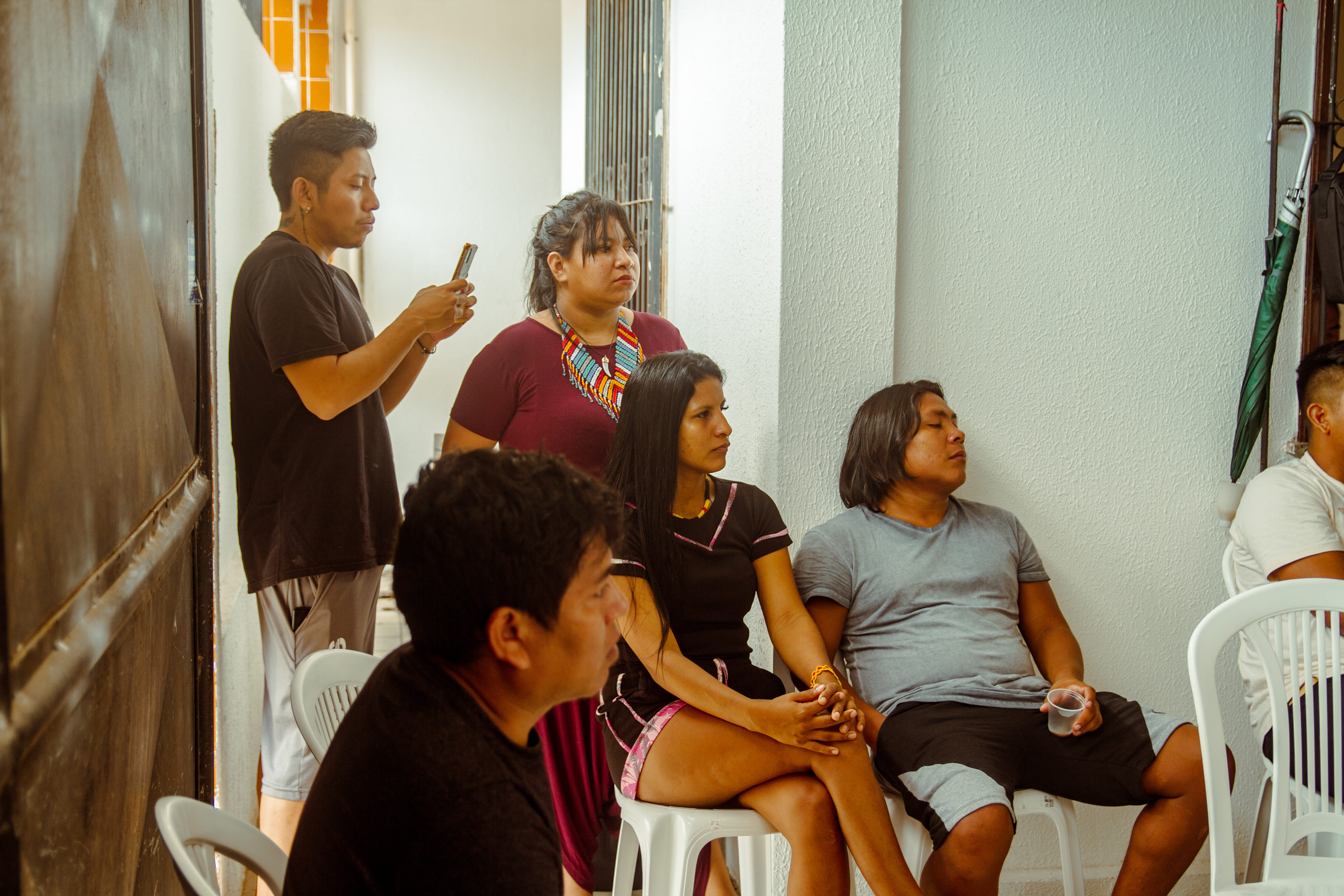
Institutional strengthening and training of Indigenous communicators
TNC collaborates with the Pará Federation of Indigenous Peoples (FEPIPA), Amapá and Northern Pará Indigenous Peoples and Organizations Partnership (APOIANP), and the Coordination of Indigenous Organizations of the Brazilian Amazon (COIAB) to conduct workshops and management and communications training for institutional strengthening. As a result, the organizations have increased their participation in Indigenous Peoples and traditional communities' social media and public policy decision-making efforts. In addition, they have strengthened their presence in communication channels, creating a communication network to promote the work of institutions and their people from their point of view and narrative.
Territorial Governance and Livestock Traceability
With the support of TNC, Pará was the only state in the Brazilian Amazon to have a financing project for innovation approved by the Governors' Task Force for Climate and Forests (GCF Task Force). The project "Planning a Carbon Neutral Sustainable Territory in the Amazon" will support the development of a Territorial Intelligence Platform to guide public and private funding of production transition. The goal is to benefit environmentally-compliant rural producers with land tenure to gain access to credit and technical assistance. The project foresees initiatives to strengthen livestock production, bioeconomy, the socio-biodiversity chains, and agroforestry-systems production. For instance, livestock-chain traceability will encourage producers to use better production practices to receive the benefits, and buyers will have greater security in obtaining sustainable-origin products.
Forest Cocoa enters a new phase and expands the number of families involved
The Forest Cocoa Project enters a new implementation phase with more investments from the private sector to expand forest restoration areas with cocoa and other native species crops in agroforestry systems (AFS). In this new stage, in addition to reaching an additional 400 families, bringing the project's total to 700 families, the initiative will conduct even broader activities to expand the technical assistance capacity and support to producers in the value chain. TNC will work with the company Olam, and those actions will bring fundamental changes to the gain in the scale of that economic solution for local communities. Additionally, the new phase seeks to boost the agroecological transition in southeastern Pará by implementing three new Demonstration Units and agroecology training for project producers and students from the Casa Familiar Rural, a community school that includes rural work-related themes in its curriculum.
Innovative Financial Mechanisms
TNC entered into new partnerships to strengthen developing and implementing financial mechanisms to boost projects that support a transition to lower-impact production models and low-carbon, socio-environmental development in the Amazon. The Eastern Amazon Fund (FAO in its Portuguese acronym) is among the new partners. Managed by the Brazilian Biodiversity Fund (FUNBIO), FAO's goal is to raise $300 million by 2025 for initiatives that fight deforestation and foment low-carbon development in line with the objectives of Pará State's Policy on Climate Change. In addition, we also participated in designing and creating a credit line framework for small rural producers via the Banpará-Bio, focusing on the standing forest bioeconomy.
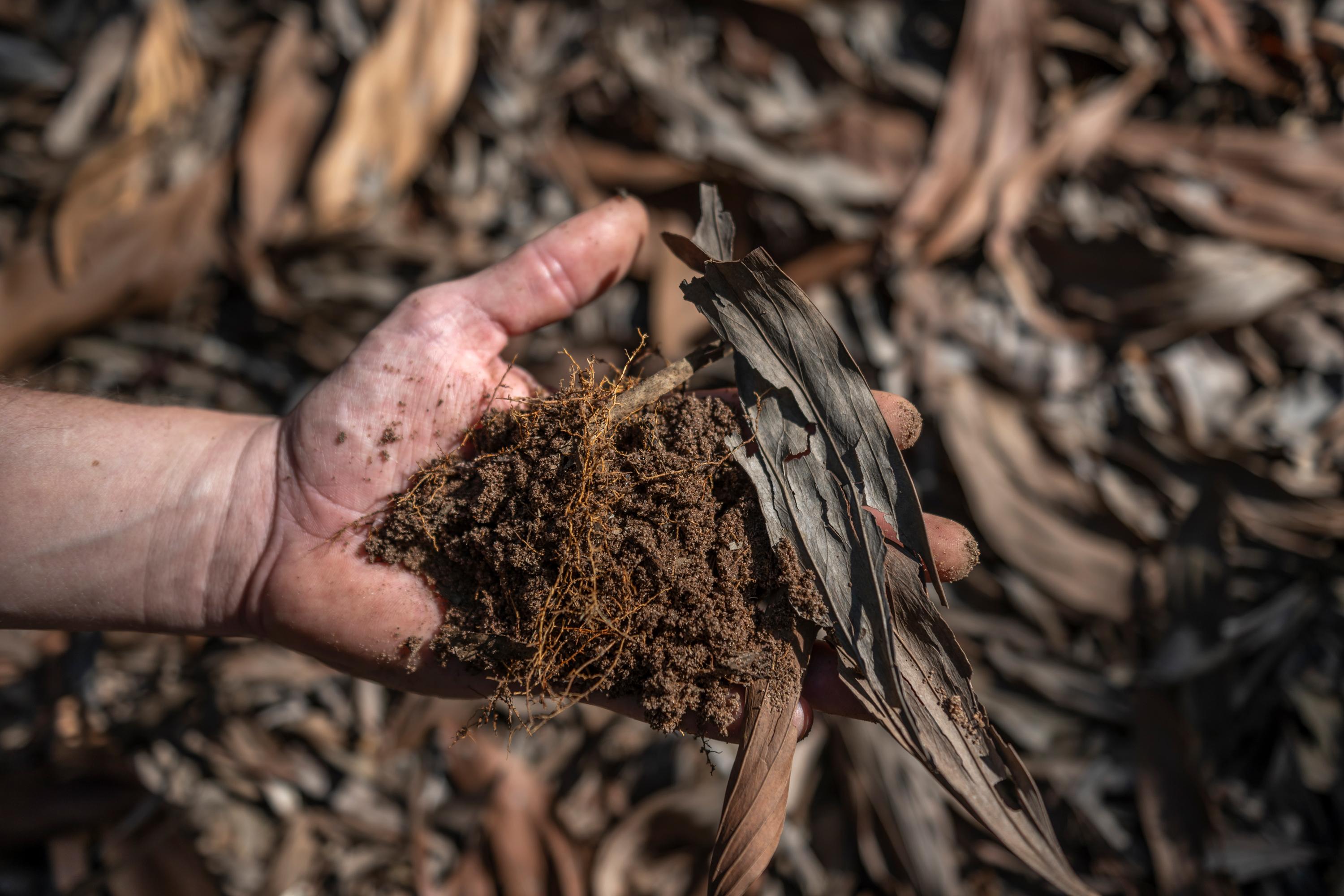
Publication of a Landscape Restoration Guide
TNC launched the Guide for the Recovery of Degraded Land in the Cerrado, an instructional manual compiling technical information that makes it possible to optimize land use and direct agricultural production growth in the biome's already-opened areas. TNC and the Brazilian Agricultural Research Corporation (EMBRAPA) developed the content with the support of the ILPF Network and the Foundation for the Support of Research in the Northern Exporting Corridor (FAPCEN).
Partnerships to increase regenerative agriculture and livestock production
TNC and John Deere signed a partnership to support disseminating regenerative agricultural practices combined with ecosystem conservation and biodiversity protection through support for integrated production systems for small and medium producers in the Middle Araguaia region. Nestlé is also a new TNC partner in the Middle Araguaia region, supporting rural producers' actions to implement regenerative agriculture and livestock production for the next four years and assessing soil-carbon benefits during project activities.
Sustainable development in Mato Grosso
TNC has long partnered with the Mato Grosso state government through its Environmental Agency. In 2021, it supported the state in preparing a submission to the LEAF Coalition, a group supported by various companies and the governments of the United Kingdom, the United States, and Norway to mobilize financing for landscape conservation and sustainable development via the forest conservation carbon market. Also, in 2021, TNC was elected as the NGO representative to the state's REDD Executive Committee and will work together with the government and other civil society stakeholders to strengthen the climate agenda in Mato Grosso.
Making Indigenous tourism official
The National Indigenous Foundation (FUNAI) approved the first Mato Grosso state Indigenous tourist plan. The Wazare Village's Paresi Peoples created the tourist-cultural project under the leadership of Chief Rony Paresi, with support from TNC, Operação Amazônia Nativa (OPAN), and Guarupa Consulting, an organization that specializes in community-based sustainable tourism. The Paresi started conducting tourist activities in 2011 to generate income. Now their efforts are official, and they can build partnerships with tourist agencies and operators to expand their activities and ensure their sustainability and ability to generate financial results compatible with social development and environmental conservation.
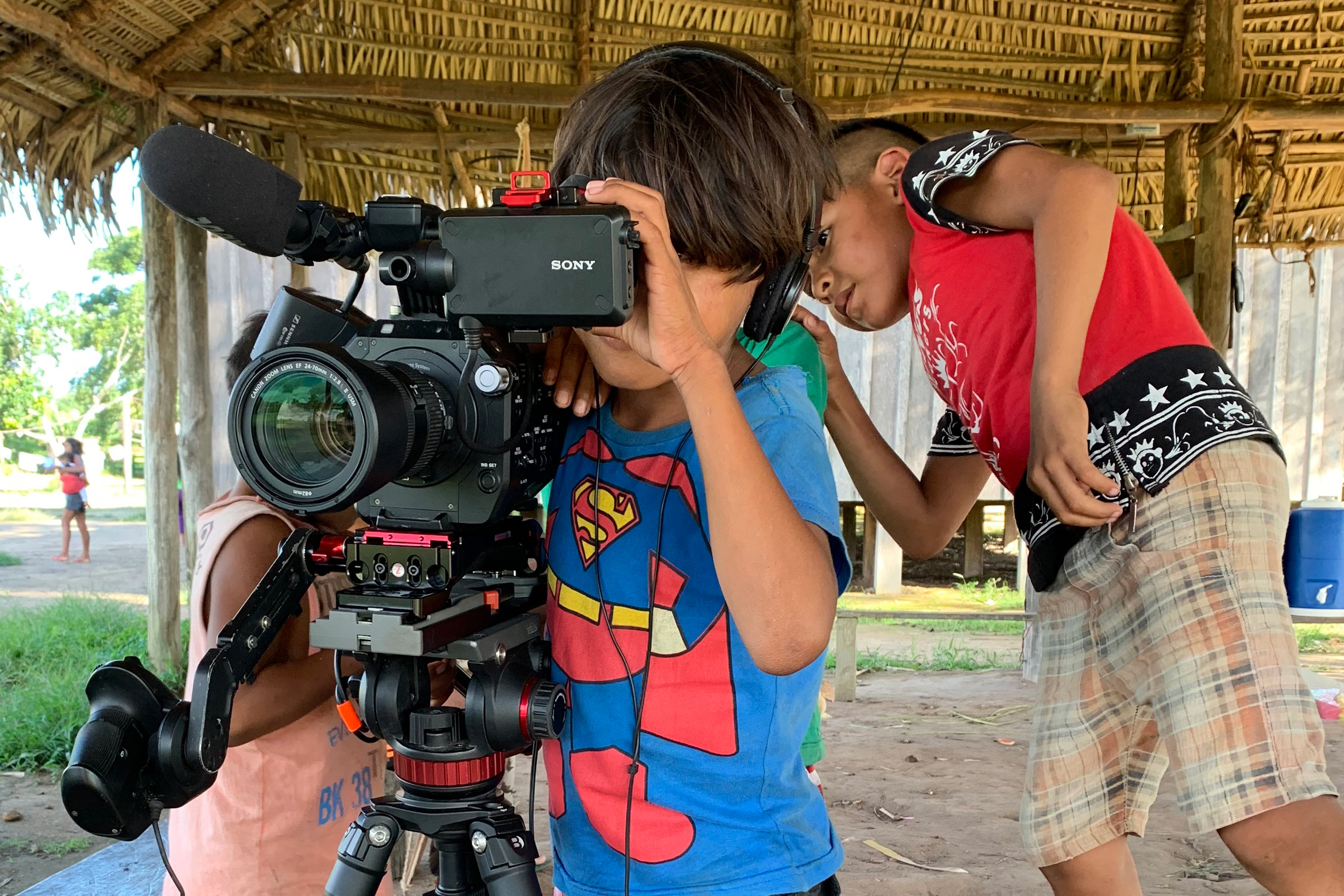
Technical support for Indigenous communities
TNC has collaborated with Indigenous organizations in Mato Grosso to support using new technologies that strengthen community economy and communication. TNC, in partnership with the women from the Maraiwatsede Indigenous Lands, worked on translating an application that monitors the trade of seeds collected for restoration into the Xavante language. TNC, in partnership with the Coordination of Indigenous Organizations of the Brazilian Amazon (COIAB), also provided communication training to strengthen the Indigenous communication network in the region to integrate the many communities and amplify the voices and visibility of Indigenous Peoples and their priority issues.
Indigenous Peoples' food security during the pandemic
The Plan to Fight Against Covid-19's Impacts is being implemented as part of the Araguaia Indigenous Peoples' food security strategy. Over 200 Indigenous communities from the Xavante, Tapirapé, Karajá, Krenak, Maxacali, and Kanela Peoples received technical support and seeds adapted for shared-garden production that supplies communities. The project is made possible by the Indigenous Peoples' Sub-program of the Mato Grosso state REDD Early Movers (REM) Program, in partnership with TNC and the Mato Grosso Federation of Indigenous Peoples and Organizations (FEPOIMT).
Fomenting the carbon market to give scale to forest restoration
With support from Mercado Livre's Regenera América Program, TNC works with the Mantiqueira Conservation Plan to give scale to forest restoration through Payment for Environmental Services (PES). The work promotes regenerating and conserving the river basins that supply more than 20 million people and mitigating the effects of climate change via carbon capture. The project also helps develop the carbon market as a possible way to finance restoration and offer rural landowners the opportunity to earn an income and PES. In 2021, TNC coordinated the land-use planning to implement the project and signed the first contracts with more than 494 acres undergoing natural regeneration.
Technological innovation to boost forest regeneration
TNC launched the innovative Mantiqueira Portal to support monitoring and managing forest conservation and restoration projects in the region. With the tool, specialists from more than 400 municipalities can make available information on properties that are part of the restoration programs and the areas already restored via their projects. We also developed the prototype of a Portal application that optimizes the use of the platform and facilitates registering restoration activities by monitoring professionals working in the field.
Generating income for those who protect nature
Payment for Environmental Services (PES) is a financial mechanism that generates income for rural landowners who commit to protecting or restoring their properties. In 2021, a federal law regulated PES and, through partnerships with governments and companies, helps generate income and recognize the value of rural landowners' properties in the Mantiqueira region in São Paulo, Rio de Janeiro, and Minas Gerais states. TNC has been involved in that agenda since 2005 when it supported implementing the first PES model in Brazil in the municipality of Extrema in Minas Gerais. The work was conducted in partnership with the State Forest Institute, the National Water Agency, and the Extrema government, among others.
New partnerships and the expanded activities of the Mantiqueira Conservation Program
Eight new municipalities launched their programs to support restoration in the region of the Mantiqueira Conservation Plan in 2021. Over 40 municipalities are partnering with the Plan along with local NGOs and local institutions to give scale to forest restoration. The new partnerships expanded our work to Rio de Janeiro state regions and Minas Gerais' Zona da Mata.
Pilot Project supports a new mechanism to finance watershed protection
TNC helped develop a Work Plan to execute the financial resources for conservation and nature-based solutions (NbS) actions as part of a pilot project that studies how to incorporate spring protection costs in São Paulo state's water tariff. Other partners were the Public Services Regulatory Agency of the State of São Paulo (ARSESP), the São Paulo State Infrastructure and Environmental Agency, and the governments of the Piracaia and Joanópolis municipalities in São Paulo state. The innovative initiative seeks new ways to finance the necessary actions to restore and protect river basins and ensure the region's long-term water security.
Training restoration specialists
TNC, in partnership with the Mantiqueira Conservation Plan, conducted seminars and workshops for civil servants, restoration technicians, rural landowners, and local partners to share knowledge and techniques to expand the scale of forest restoration in the region. In 2021 alone, 523 people took part in the training promoted by TNC and its partners all over the Mantiqueira region.
Study maps native fruit producers
TNC supported a study conducted by Rede Apoena and H&H Fauser Institute in the Paraíba Valley to map the native-fruit production in the Atlantic Forest. The study identified specialized producers, the species grown and their quantity, and the particular aspects of the activities in each sub-region. The initiative helps decision-making that promotes new forest restoration projects in agroforests, considering the consolidated markets and those being created and expanded.
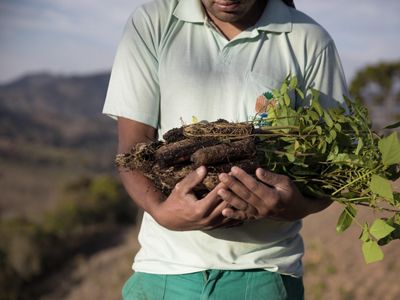
Restaura Brasil
Restoring key areas for climate, water, biodiversity, and people
The Restaura Brasil Campaign takes on the challenge of restoring 988,421 acres (equivalent to 1 billion trees) by 2030 and promoting a great collective restoration movement in the country.
Created in 2018, Restaura Brasil has a broad territorial vision to accelerate restoring Brazil’s native forests through various techniques and tools that increase the scale of projects and integrate with other TNC conservation strategies. The campaign helps engage municipal and state programs, value chains, the scientific community, multilateral agencies, companies, other NGOs, and civil society.
Nature-based Solutions such as restoration and conservation can provide as much as 40% of what we need to tackle climate change and the crisis resulting from it.
The priority regions where we work are defined on a scientific basis. They include connecting areas between forest remnants that form ecological corridors and zones that contribute to ensuring water security, such as riverbanks, springs, and water courses in important river basins that supply water to great urban centers.
In 2021, we entered the Ecosystem Restoration Decade (UN – 2021 to 2030), a milestone recognizing restoration’s importance in minimizing climate change, maintaining biodiversity, ensuring food and water supplies, and engaging people in the effort. TNC’s work in partnership with the private sector, civil society, and governments is an important step in conserving biodiversity in Brazil’s biomes. It gains relevance before a growing global movement for climate-change mitigation.
The Forest Cocoa Project in the Amazon has already restored 2,584 acres. The initiative restores degraded areas by planting forest species in agroforestry systems in which cocoa is the flagship crop, along with ecological restoration of riverbanks and springs. More than 250 producers have already benefited from increased income and food diversification.
In the Cerrado, TNC’s efforts are concentrated on the Araguaia Basin, especially in Mato Grosso state, where several partners and we began our work in 2006, helping with the environmental compliance of rural properties. The goal is to contribute to Mato Grosso’s objective of restoring 7.1 million acres by 2030 as part of its Produce, Conserve, and Include Program.
In the Atlantic Forest, the Mantiqueira Conservation Plan has already helped bring more than three million new trees to the biome. That represents more than 2,965 acres, contributing to the forest’s restoration.
In addition to the project’s implementation and maintenance activities, Restaura Brasil monitors restored areas to observe the vegetation’s growth and consolidation. TNC and partners’ efforts, on which Restaura Brasil is anchored, have already contributed to restoring more than 261,931 acres, equal to more than 266 million trees in the country.
The restored areas are monitored, mapped, and entered into a monitoring and management digital georeferenced platform that makes it possible to view and obtain information regarding the number of trees, ecological indicators, and project details. We use technology in our favor and apply innovative monitoring techniques in our work areas.
In 2021, we established a campaign and signed important partnership agreements with Drogasil, DocuSign, Ambev, Engie, and Grupo Globo’s Canal Off, in addition to receiving hundreds of individual donations online. That represents a total commitment of 29,751 trees on 29.4 acres. This restoration effort generates multiple benefits to ensuring water security in great urban centers, mitigating climate change, and generating income for rural producers and local communities.
We thank all our campaign supporters. Nature connects us. Join us, and plant trees!
Learn more and find out how to donate or engage your company at https://www.restaurabrasil.org.br/en/
TNC in the Media
In 2021, TNC helped expand the knowledge and relevance of the environmental conservation agenda through studies and their restoration, freshwater, agriculture and livestock regenerative production specialists, Indigenous Peoples and traditional communities, science, climate and biodiversity.

Transparency
Our values shape who we are as an organization and how we behave as individuals. They inspire us to do what is right for each other, always guided by our Code of Conduct. We conduct our work with a profound sense of responsibility, diversity and respect to people and communities, seeking to use each amount donated to TNC with care and efficiency through a solid corporate governance structure.
Our financial statements are audited and present an unqualified opinion, determining that the information is fair and appropriate.
Financial Transactions (in millions of reais)
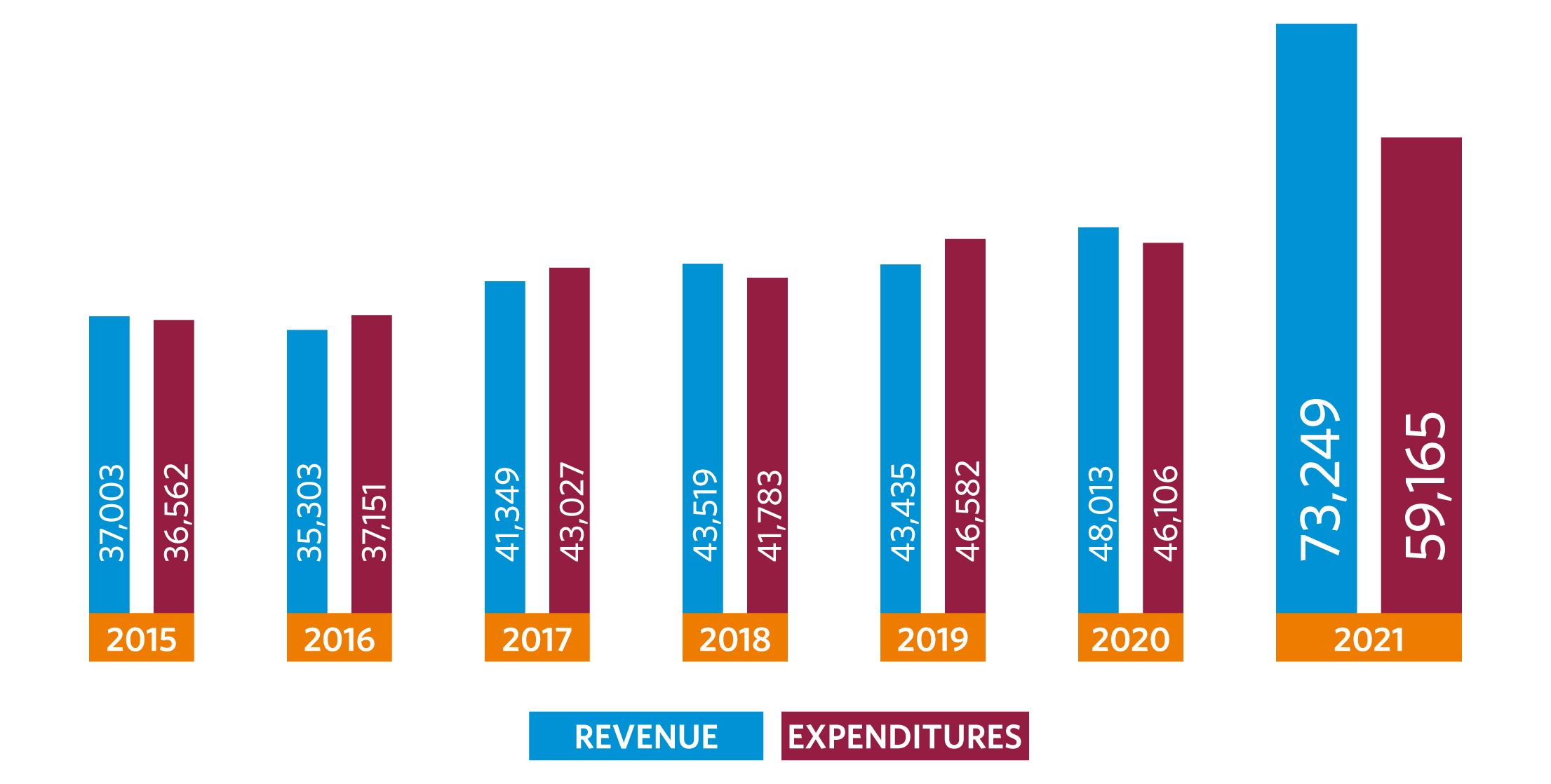
Our Team
Our news straight to your email!
Subscribe to our newsletter and receive news and articles about TNC's work in Brazil.
